PHILOSOPHY AND ETHICS 2025



9780268210335
$28.00
200
9.4




9780268210335
$28.00
200
9.4
A Feminist Manifesto
Leah Libresco Sargeant
The Dignity of Dependence argues that women’s equal rights depend on advocating for women as women.
The world is not ready to welcome women as women; a culture that fears dependence and asks everyone to aim for autonomy and independence will always be a society hostile to women. Women are expected to care for those around them while living in a society that despises need and penalizes those who care for the weak.
The Dignity of Dependence aims to liberate women and men from this corrosive and false ideal of the human person as strongest alone. Leah Libresco Sargeant argues that to thrive, human beings need to exist in webs of mutual dependence, not in isolating, radical autonomy. Women’s equal dignity doesn’t require women to deny biological reality or attempt to be interchangeable with men. Sargeant advocates for building a culture that accepts and celebrates women as they are rather than demanding that women keep their relationships and their bodies in check. The fight for women’s dignity is a fight for a full, human dignity—a dignity that isn’t threatened by dependence. It is our need for each other that makes us human.
Contributor Bio
Leah Libresco Sargeant Sargeant is a writer and speaker whose work covers religion, culture, statistics, and family policy. She is the author of Building the Benedict Option and Arriving at Amen. She runs the substack community Other Feminisms.

Pascal’s Defense of the Christian Proposition
Pierre Manent, Paul Seaton
Summary
Challenging Modern Atheism and Indifference is the first English translation of Pierre Manent’s penetrating engagement with the seventeenth century polymath and apologist for the Christian faith, Blaise Pascal.
Blaise Pascal (1623–1662) was the first Christian apologist to address modern human beings on their own terms and present a defense of the Christian religion that still resonates today. A major publishing and intellectual event in France when it first appeared in 2022, Challenging Modern Atheism and Indifference is Pierre Manent’s investigation of Pascal’s exploration of Christianity in the wake of a sharp atheistic turn at the dawn of the modern state and modern science. Comprehensive in scope and profound in treatment, this engagement with all of Pascal’s writings, including his famous Pensées, appeals to the reader’s head and heart. Manent emphasizes the joy that comes from engaging the truth of faith, and he argues that we are diminished by forgetting the unique and distinctive contributions of Christianity.
More than brilliant exegesis, Manent enlists Pascal in a much greater endeavor: to make what he calls “the Christian proposition” concerning God and man intelligible to Europeans who have made it their business to ignore the religion that founded Europe and the larger Western world.
Contributor Bio
Pierre Manent is professor emeritus of political philosophy at the École des Hautes Études en Sciences Sociales. He is the author of numerous books, including Montaigne: Life without Law
Paul Seaton is an independent scholar of political philosophy, with a special focus on French political thought. He has written extensively on modern and contemporary French thinkers, as well as translated works by Rémi Brague, Benjamin Constant, Chantal Delsol, and Pierre Manent.
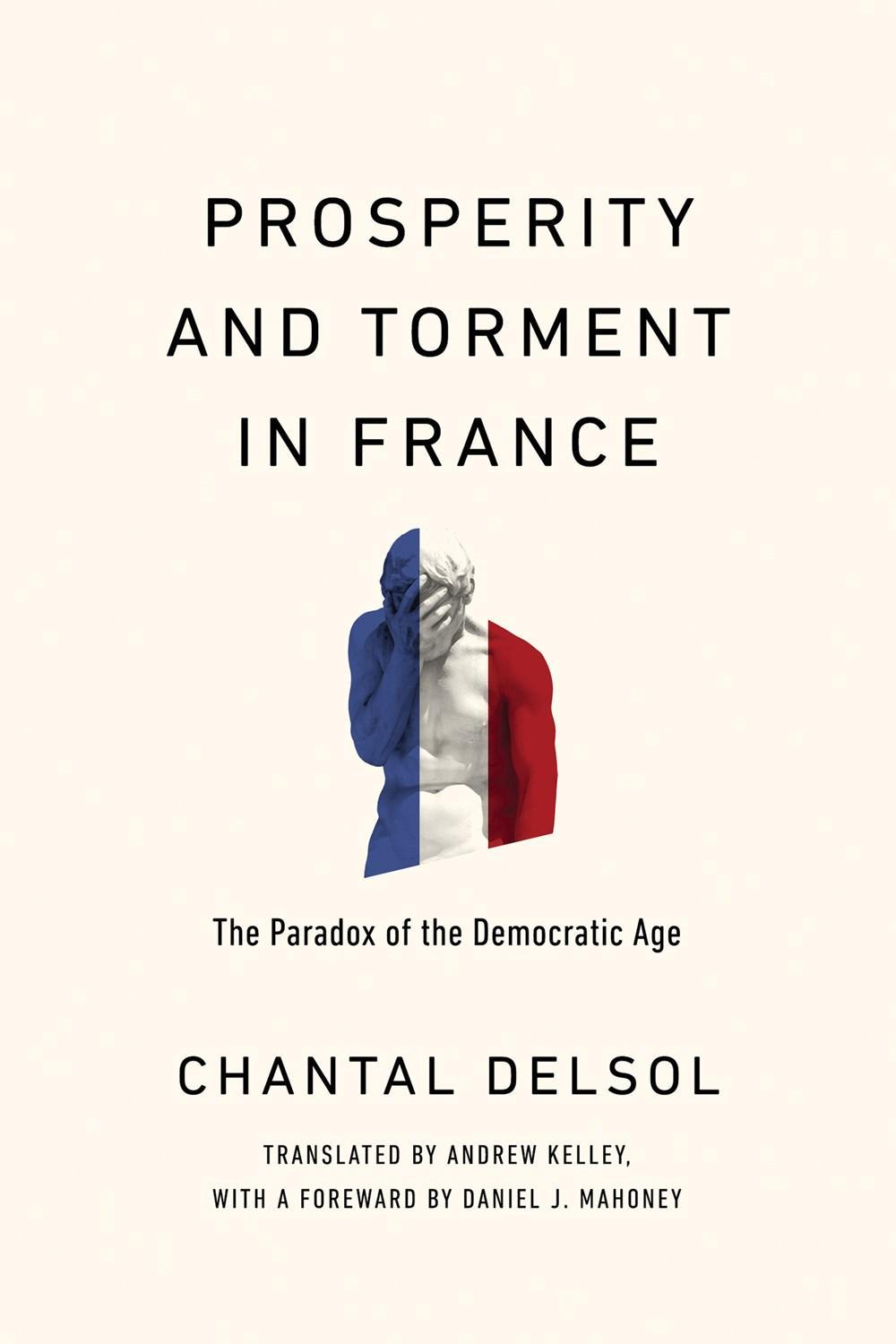
9780268209735
Pub Date: 8/1/25
$30.00
150 Pages
Science / Religion,
8.5 in H | 5.5 in W
The Paradox of the Democratic Age
Chantal
Delsol, Andrew Kelley
Summary
A philosophical and historical analysis of the paradox of French democracy that illuminates the challenges of the current democratic age.
In Prosperity and Torment in France, philosopher Chantal Delsol provides an analysis of the current state of affairs in French politics, economics, and cultural life that reveals key lessons for modern democracies around the world. She examines the seeming paradox of France as a wealthy country that provides almost unrivaled social services to its citizens at no extra cost, but one whose citizens are unsatisfied with the current state of affairs. Delsol traces this current dilemma back several hundred years, and examines the principle of the common good and its inherent tension with concepts like democracy and egalitarianism that often emphasize individualism. Likewise, Delsol emphasizes this concept also stands in contrast to the centralization of power in Paris throughout its history. In the end, Delsol notes that these historical tensions set the stage for many of the current tensions in France: secularism versus religion, economic liberalism versus the welfare state, civil service versus the private sector, and material wealth versus status.
By examining the paradox of France, Delsol brings to the forefront the challenges democracies are facing around the globe and asks the broader question of how governments should best serve their people in our contemporary world.
Contributor Bio
Chantal Delsol is professor of philosophy at the University of Marne-la-Vallée and an elected member of the Académie des Sciences Morales et Politiques (Institut de France). She is the author of numerous books, including La Fin de la Chrétienté (The End of Christianity).
Andrew Kelley is professor of philosophy and chair of the Department of Philosophy and Religious Studies at Bradley University.

Melissa Moschella
Summary
A rigorous but accessible overview of the new natural law account of ethics and political philosophy.
The foundational principles of ethics and politics are principles that guide us to respect and promote human flourishing. In Ethics, Politics, and Natural Law Melissa Moschella provides an accessible explanation and development of the new natural law account of these principles while clarifying common misconceptions.
As a commonsense ethical theory, natural law grounds ethics in the fundamental dimensions of human flourishing. Moschella lays out the basic principles of natural law, their relationship to the virtues, and their social and political implications. Highlighting the importance of communities for flourishing, Moschella explains how this should shape our understanding of justice and the common good, and shows how natural law principles support limited government and civil liberties. She also considers the relationship between morality and God, and how natural law relates to Christian revelation. This fresh and compelling account of new natural law is the go-to resource to understand this important and influential theory.
Contributor Bio
Melissa Moschella is a professor of the practice in philosophy at the University of Notre Dame’s McGrath Institute for Church Life. She is the author of To Whom Do Children Belong? Parental Rights, Civic Education, and Children’s Autonomy.

9780268209551 Pub
$40.00
208
9
Bob Pepperman Taylor
Summary
Liberal Education and Democracy addresses three vital arguments for liberal education and its integral relationship to democracy.
Liberal education is currently under attack as both politically subversive and economically impractical. In Liberal Education and Democracy, Bob Pepperman Taylor evaluates both the defenses that have been offered for liberal education and the complex relationship between liberal education and democracy. He offers a compelling case for maintaining a strong commitment to this form of education as an essential good for all citizens.
His three primary arguments for liberal education are that it prepares students to be useful contributors to the economy, that it prepares citizens to be thoughtful and responsible, and that it can stimulate students to experience the delight of intellectual exploration and understanding. Taylor moves through each of these arguments and concludes that the seemingly least practical of them may in fact be the most powerful. He gives an insightful glimpse into the current democratic climate and through thorough examination argues that democracies need liberal education as much as liberal learning requires the freedom of democratic societies.
Contributor Bio
Bob Pepperman Taylor is the Elliott A. Brown Green and Gold Professor of Law, Politics, and Political Behavior at the University of Vermont. He is the author of Lessons from "Walden": Thoreau and the Crisis of American Democracy, which was named the winner of the American Political Science Association section award for the best book of 2020 in American political thought.

Bob Pepperman Taylor
Summary
Original and passionate, Lessons from Walden presents a wide-ranging inquiry into the nature and implications in the works of Henry David Thoreau.
Henry David Thoreau’s works are a backbone of American political philosophy, but how do his ideas translate into the tumultuous modern political landscape? Bob Pepperman Taylor closely examines Walden and Civil Disobedience, focusing on the philosophical questions Thoreau raises. He considers simplicity and the ethics of “voluntary poverty,” examines the role conscience plays in democratic policies, and the truth of what “nature” means, and what, if anything, we can learn from it today. By drawing on a wide range of perspectives—from historians, philosophers, and popular media—Taylor breathes new life into Thoreau’s work and shows how it is still alive for us today. He allows all sides to have their say, even as he persistently steers the discussion back to a nuanced reading of Thoreau’s actual position.
With a tone of friendly urgency, this interdisciplinary tour de force intersects American literature, environmental ethics, and political theory to address the concerns facing the current political landscape and the future of democracy.
Contributor Bio
Bob Pepperman Taylor is the Elliott A. Brown Green and Gold Professor of Law, Politics, and Political Behavior at the University of Vermont.
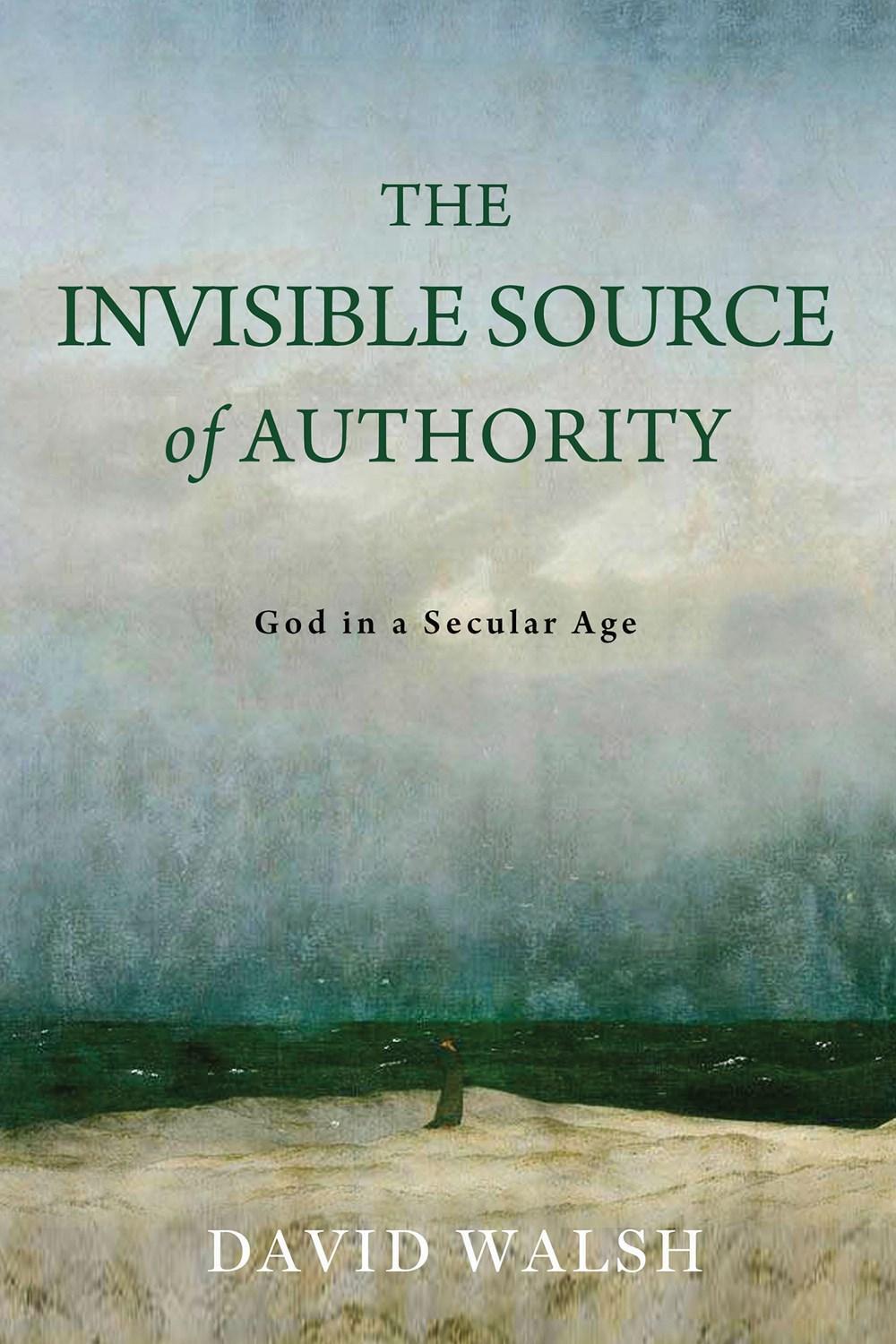
9780268209575
Pub Date: 7/15/25
$38.00 USD
Paperback
196 Pages
Philosophy / Ethics & Moral
Philosophy
Series: The Beginning and the Beyond of Politics
9 in H | 6 in W
David Walsh
Summary
The Invisible Source of Authority is a philosophical meditation on the secular age and challenges the notion that the secular can be understood without reference to God.
How does one reject God while denying belief? This is the central paradox of our secular age, where efforts to erase God only affirm his presence. In The Invisible Source of Authority, David Walsh examines this paradox and argues that a secular world actually reveals God more clearly, rather than bringing about what has been called the death of God. Unlike many critics of modernity, Walsh argues that secularism is not inhospitable to authentic religious faith and cannot be understood without reference to God.
Drawing on the writings of early modern thinkers like Montaigne, Descartes, and Grotius, Walsh asserts that God’s absence from the secular world is testimony to God’s transcendence. Because the secular is always that which has withdrawn from serving God, Walsh suggests that this presupposition proves that God remains indispensable to the self-understanding of secular society. The Invisible Source of Authority seeks to remind us that, despite his seeming absence, the transcendent God remains an essential presence.
Contributor Bio
David Walsh is professor of politics at the Catholic University of America. He is the author and editor of a number of books, including The Priority of the Person and The Growth of the Liberal Soul.
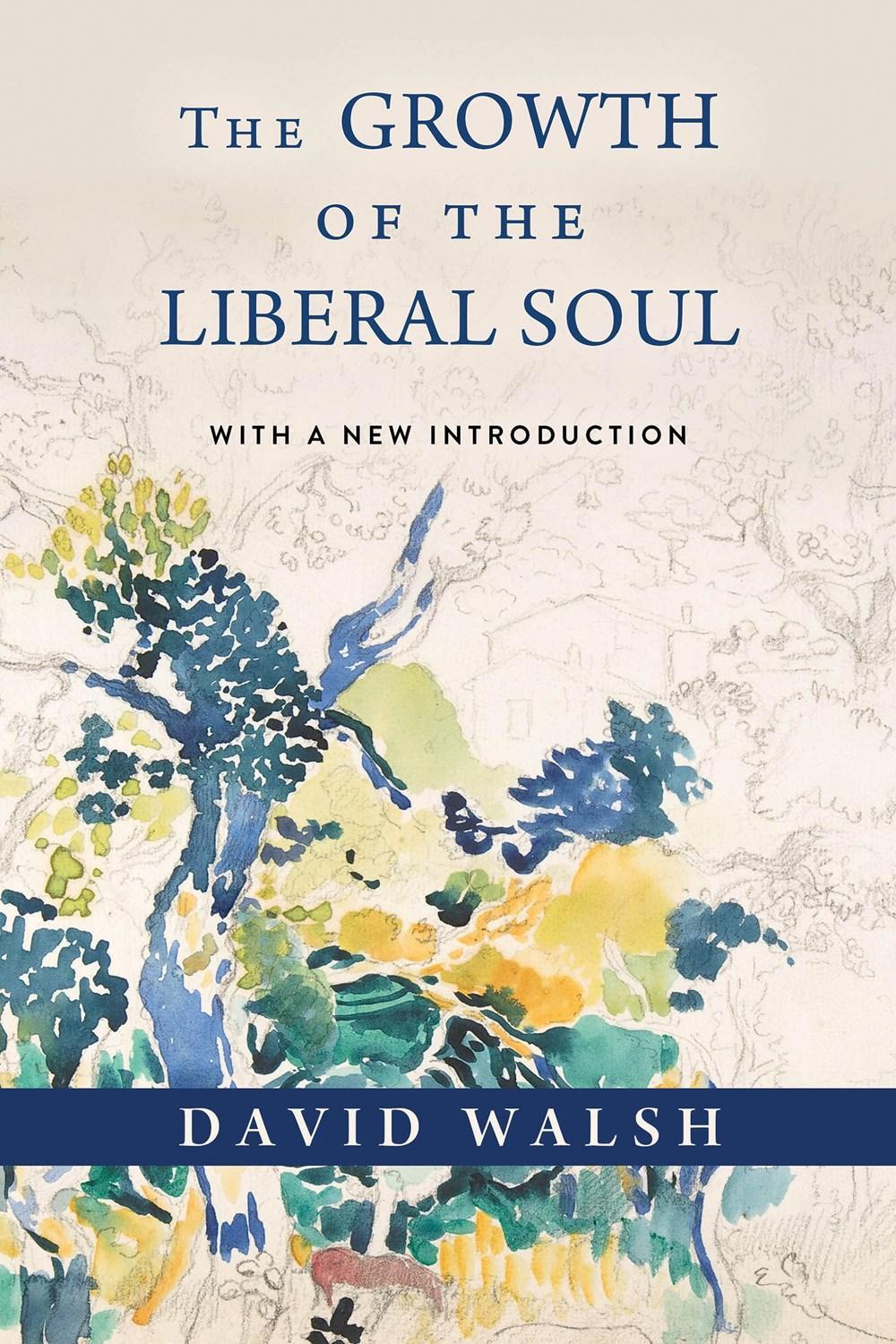
9780268209612
David Walsh
In The Growth of the Liberal Soul, David Walsh provides a dazzling defense of liberalism by confronting the core difficulty of the liberal democratic tradition in explaining and justifying itself.
David Walsh’s groundbreaking work addresses a pivotal crisis in liberal democratic self-understanding, as many leading thinkers abandoned the search for a foundation in human nature or moral truth. Without a firm footing, proponents of liberalism could not explain its initial extraordinary success or the recent seeming unraveling of its own moral code. Instead, Walsh argues that Christianity and philosophy formed the original foundation for liberalism, and that only the ideals of service, self-responsibility, and the sacredness of each person can provide the grounding that liberalism desperately needs.
As Walsh seamlessly weaves together the ideas of Hobbes, Locke, Kant, Hegel, Tocqueville, Nietzsche, and other leading thinkers, The Growth of the Liberal Soul crafts a compelling defense of liberalism and issues an inspiring call to see liberty not as an invitation to universal egoism, but as the pursuit of the greatest justice, freedom, and fulfillment for all members of the community.
David Walsh is professor of politics at the Catholic University of America. He is the author of The Priority of the Person and Politics of the Person as the Politics of Being.

9780268209155
Pub Date: 4/15/25
$38.00
260 Pages Political Science / Religion, Politics & State Series: The Beginning and the Beyond of Politics
9 in H | 6 in W
Travis Curtright
The Controversial Thomas More offers an original and critical intervention on the writings of Thomas More and his opposition to King Henry VIII.
Thomas More is known for refusing the oath of succession and remaining silent about his reasons for doing so. His prison literature, however, tells a different story. Under the threat of execution, More waged an astonishingly prolific and often coded writing campaign in rebuke of King Henry VIII’s claim to be supreme head of the Church in England. Travis Curtright’s groundbreaking book shows how William Rastell, More’s nephew and printer, fashioned a historically inaccurate depiction of More, one that persists to this day. Rastell’s edition of More’s works gave the false impression that More stopped writing polemical literature in 1533 and, instead, turned his mind exclusively toward heaven and away from politics. In contrast, Curtright proves that More’s prison writings are not just devotional literature but also a powerful defense of a united Church under the pope, reestablishing More as a key political and religious thinker, defiant of King Henry VIII.

Contributor Bio
Travis Curtright is professor of humanities and literature at Ave Maria University. He is the author or editor of four previous books, including The One Thomas More, and is the editor-in-chief of Moreana: Thomas More and Renaissance Studies.
A Philosophical Meditation
Glenn Hughes
Summary
Inherent Human Dignity explores the philosophical and existential foundations of what it means to be human.
Inherent Human Dignity is a philosophical meditation and defense of the value of being human. Glenn Hughes explores the existential foundations of these concepts in this structured and accessible study about the experience of being human.
Most scholars restrict More’s political thought to his Utopia, but The Controversial Thomas More shows how his prison writings best reveal his ideas of political unity and authority, and is a reconsideration of More’s legacy and place in the history of the Henrician Reformation. 9780268209957
Hughes locates human dignity within the philosophical, political, and historical horizons of human culture. Guided by Eric Voegelin and Bernard Lonergan, literary and artistic examples, and his own Christian, Hindu, and Buddhist writings, Hughes unfolds and accounts for human dignity’s place in our world. He additionally utilizes key moments of our modern era to frame our understanding of human dignity, paying close attention to the Universal Declaration of Human Rights that was created by the United Nations following World War II. Ultimately, Hughes’s meditation is concerned both with exploring the maximally differentiated set of insights into the meaning of being human and with articulating why the discovery of equality of inherent dignity in every person—without exception—is a profound and rare achievement.
Glenn Hughes (1951–2024) was professor emeritus at St. Mary’s University. He was the inaugural holder of the St. Mary’s Chair in Catholic Philosophy. He is the author of several books including From Dickinson to Dylan: Visions of Transcendence in Modernist Literature and Transcendence and History: The Search for Ultimacy from Ancient Societies to Postmodernity

9780268208974
$65.00
302
Mark Hoipkemier
Summary
The Price of the Common Good offers a fresh perspective on economic prosperity and solidarity that emphasizes communal interests.
There is more at stake in market economies than self-interest or making money. Lying just below the surface, there are shared projects answering the deepest political questions of how we live together and who we become. The Price of the Common Good exposes the inadequacies of the prevailing individualistic vision of markets and firms and develops an incisive new framework for analyzing the shared goods that are always in play. To get a purchase on the full moral architecture of markets and firms, Mark Hoipkemier recovers the classical idiom of the “common good” for today’s economy.
Hoipkemier argues not that economic institutions should ideally embody communal purposes, but that they already do. Engaging with leading political economists, he shows the centrality of common goods in real-world institutions with examples such as Uber, corporate law, and globalized auto manufacturing. The Price of the Common Good offers both the defenders and critics of the market a richer way of deliberating about shared concerns in markets and firms as they are and as they should be.
Contributor Bio
Mark Hoipkemier is an assistant professor in the Program on Politics, Philosophy, and Economics at the University of Navarra.

Angela Franks
Angela Franks provides a sweeping intellectual history of identity, particularly in terms of how identity relates to the body, with an emphasis on the importance of Christianity to this understanding.
Modern questions about our bodies and how we see ourselves, both physically and mentally, are often complex and problematic. To better answer these contemporary questions and navigate “identity politics,” Angela Franks seeks to provide a better understanding of identity. She begins by giving three basic meanings of the term: identity through time, the “true” or authentic self, and our awareness of ourselves. She engages with thinkers from antiquity to present day and investigates the decisive developments that Christianity provided. Within Christianity came a new awareness of the distinctive individuality of each person—the “true self”—called by God in a way that often breaks away from the “solid” or fixed structures of identity formation, such as family, class, and nation. This more “liquid” idea of identity continues to evolve in modern times, but without its theistic emphasis on God’s call. The result is a purely liquid self that consists of consciousness and activity, but without a grounded self that is either the object or the subject of consciousness. This is the empty self we have today, one that is given much more to do and less to be.
A comprehensive history of identity, Body and Identity brings the theological history of the self to the forefront in order to address the empty self and how identity is defined today.
Contributor Bio
Angela Franks is an assistant professor of theology at the Catholic University of America.
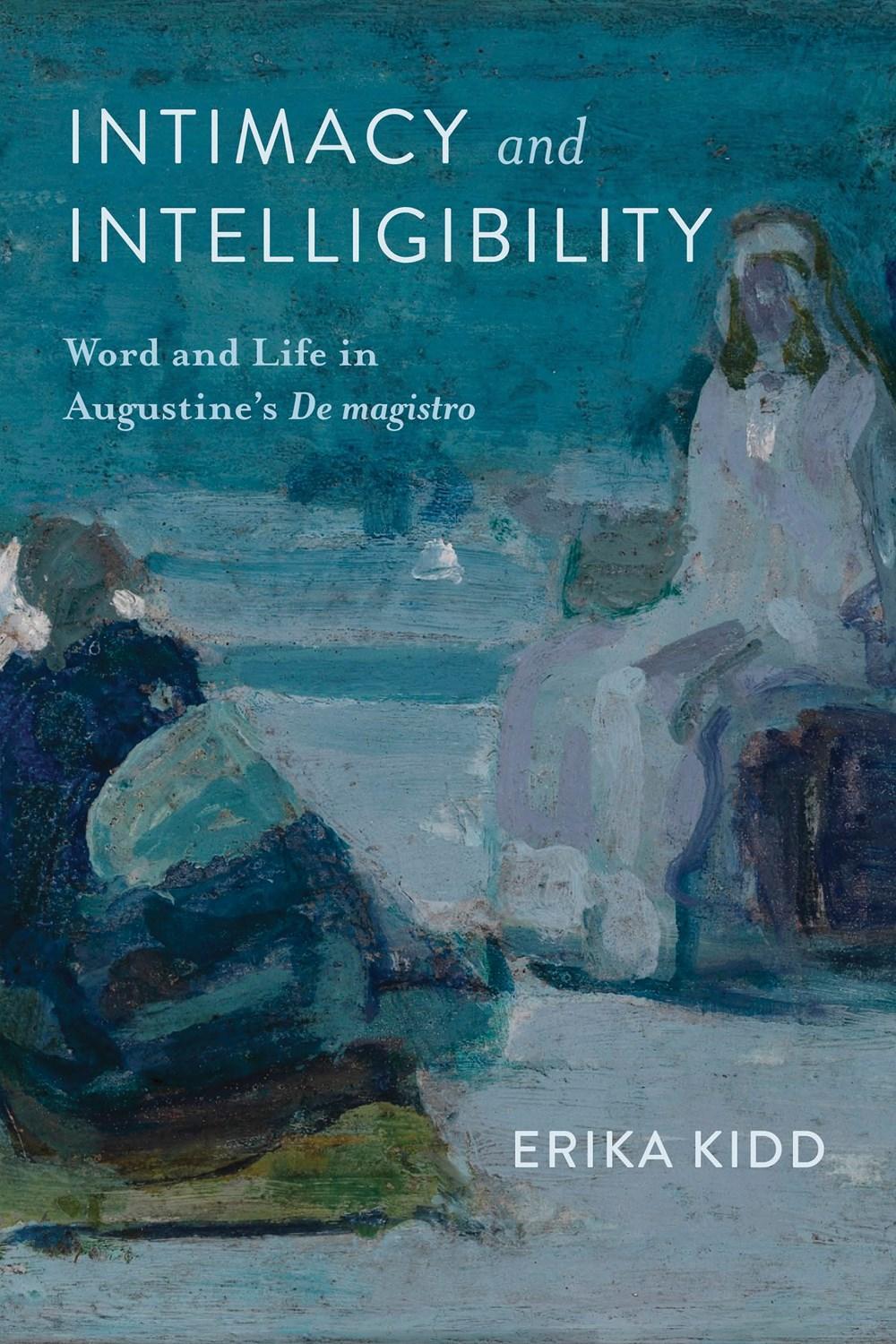
9780268210212
Pub Date: 10/15/25
$45.00
156 Pages
/ Christian
Word and Life in Augustine's "De magistro"
Erika Kidd
Summary
Intimacy and Intelligibility is a paradigm-shifting exploration of De magistro, Augustine’s overlooked and misunderstood dialogue about words and signs.
Erika Kidd's fresh approach to Augustine’s De magistro (On the Teacher) fills a gap in the emerging conversation about Augustine’s early dialogues, while avoiding the disincarnate bias of existing interpretations of this essential work. Kidd’s reading situates the dialogue within a broadly Augustinian tradition of reflection on language and intimacy. Drawing on the work of feminist philosopher and linguist Luce Irigaray, Intimacy and Intelligibility unpacks the literary form and the relational context of De magistro, including the women who lurk in the dialogue’s shadows. Kidd likewise reimagines the place of Christ, the inner teacher, in the dialogue. Though the inner teacher is often cast as a mere guarantor of meaning, she argues that the inner teacher summons Augustine and his son Adeodatus to an intimate space of meaning, rooted in the life they share.
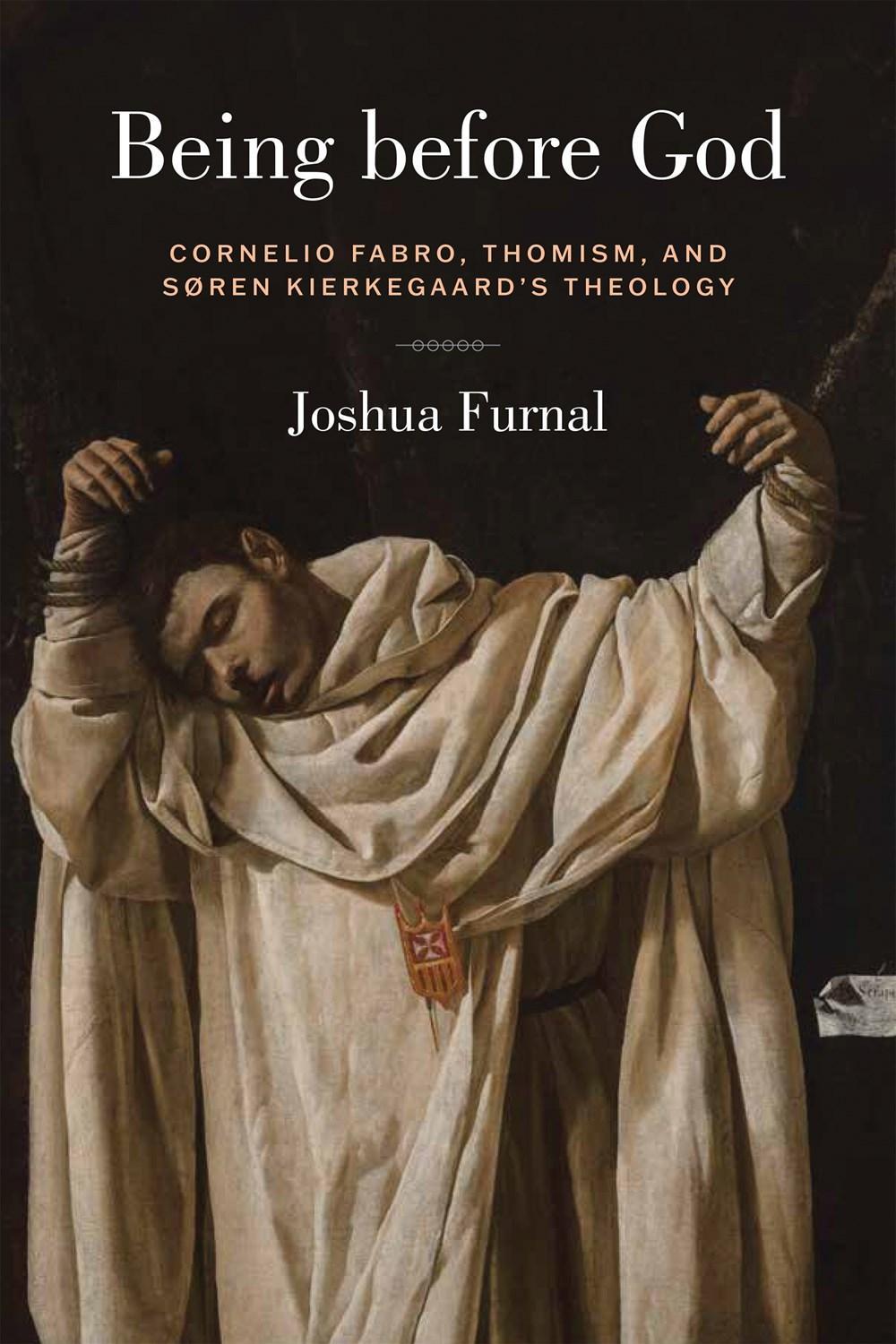
Contributor Bio
Erika Kidd is an associate professor of Catholic studies at the University of St. Thomas.
Kidd reveals that De magistro is not a text about informing but a text about intimacy. It is a rich meditation on the blessed life and a worthy memorial to Augustine’s beloved son. 9780268209872
Cornelio Fabro, Thomism, and Søren Kierkegaard's Theology Joshua Furnal
Summary
Being before God offers a thorough account of Cornelio Fabro’s Thomistic reading of Søren Kierkegaard’s theology, speaking both to systematic theology and Kierkegaard studies.
Italian Stigmatine priest and Thomist philosopher Cornelio Fabro is well known for his work on the metaphysics of Thomas Aquinas. Yet despite also authoring many studies on Søren Kierkegaard, Fabro remains virtually unknown among Kierkegaard scholars outside of Italy. Being before God sheds light on the influence of Kierkegaard’s writings on Fabro’s Thomism and provides a detailed historical account of Fabro’s contributions to Kierkegaard studies and systematic theology. Drawing upon rare archival material, including materials that have never been translated into English, Joshua Furnal speaks to Kierkegaard’s relationship to Catholic theology, the Kierkegaardian aspects of Fabro’s Thomism, and Fabro’s Thomistic approach to Kierkegaard in turn. Being before God also highlights how Fabro’s work brings together ideas from both Aquinas and Kierkegaard to broaden the horizon of contemporary theology.
Through his meticulous research, Furnal contends that, despite his lack of modern recognition, Fabro remains one of the most important European interpreters of Kierkegaard in the twentieth century.
Contributor Bio
Joshua Furnal is a permanent lecturer in systematic theology at St. Patrick’s Pontifical University in Maynooth, Ireland. He is the author of Catholic Theology after Kierkegaard and an English translator of Cornelio Fabro’s writings.
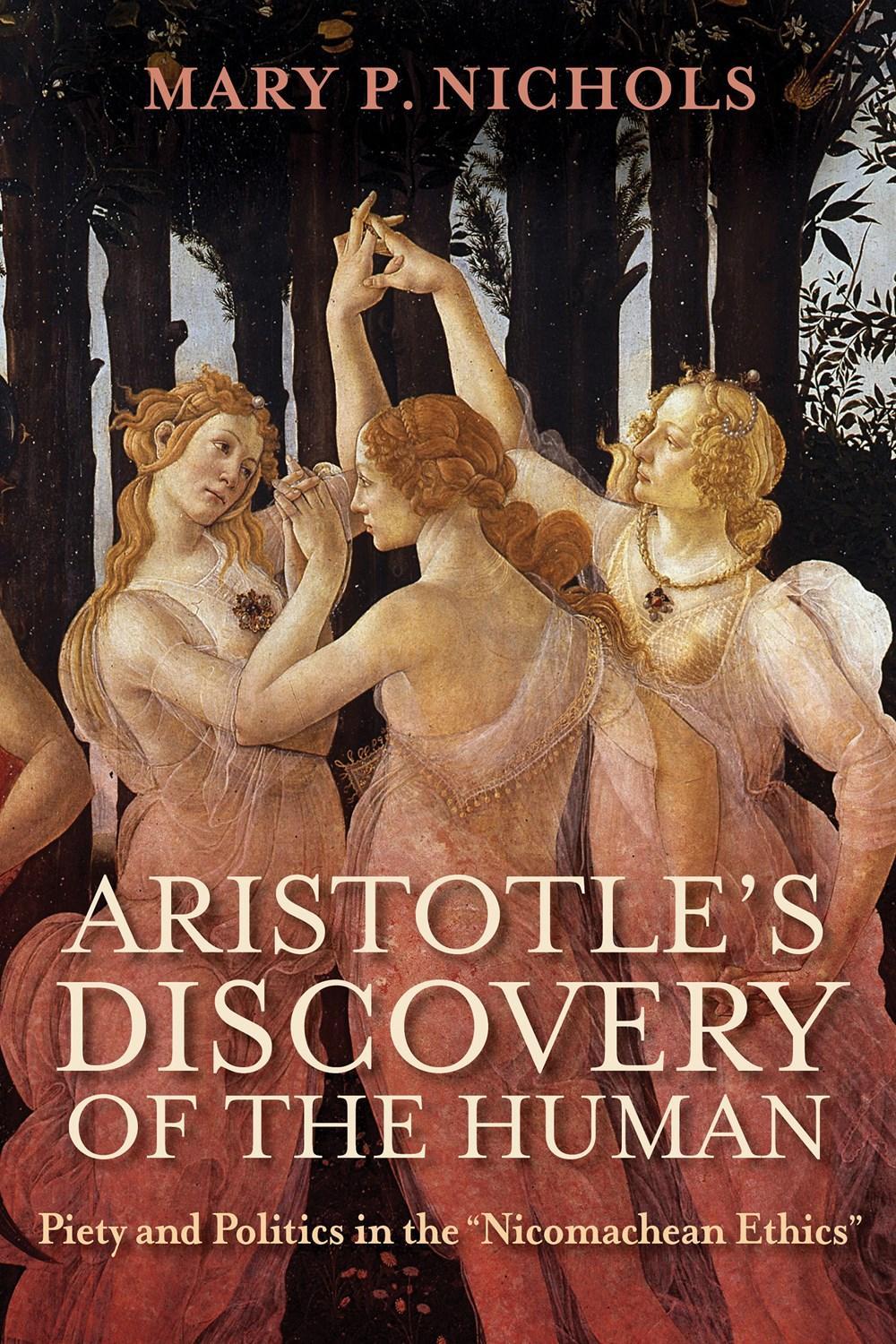
9780268205461
Pub Date: 2/15/25
$45.00
356 Pages
Mary P. Nichols
Aristotle’s Discovery of the Human offers a fresh, illuminating, and accessible analysis of one of the Western philosophical tradition’s most important texts.
In Aristotle’s Discovery of the Human, noted political theorist Mary P. Nichols explores the ways in which Aristotle brings the gods and the divine into his “philosophizing about human affairs” in his Nicomachean Ethics Her analysis shows that, for Aristotle, both piety and politics are central to a flourishing human life. Aristotle argues that piety provides us not only an awareness of our kinship to the divine, and hence elevates human life, but also an awareness of a divinity that we cannot entirely assimilate or fathom. Piety therefore supports a politics that strives for excellence at the same time that it checks excess through a recognition of human limitation.
Proceeding through each of the ten books of the Ethics, Nichols shows that this prequel to Aristotle’s Politics is as theoretical as it is practical. Its goal of improving political life and educating citizens and statesmen is inseparable from its pursuit of the truth about human beings and their relation to the divine. In the final chapter, which turns to contemporary political debate, Nichols’s suggestion of the possibility of supplementing and deepening liberalism on Aristotelian grounds is supported by the account of human nature, virtue, friendship, and community developed throughout her study of the Ethics
Contributor Bio
Mary P. Nichols is professor emerita in the Department of Political Science at Baylor University. She is the author of seven books, including Thucydides and the Pursuit of Freedom.
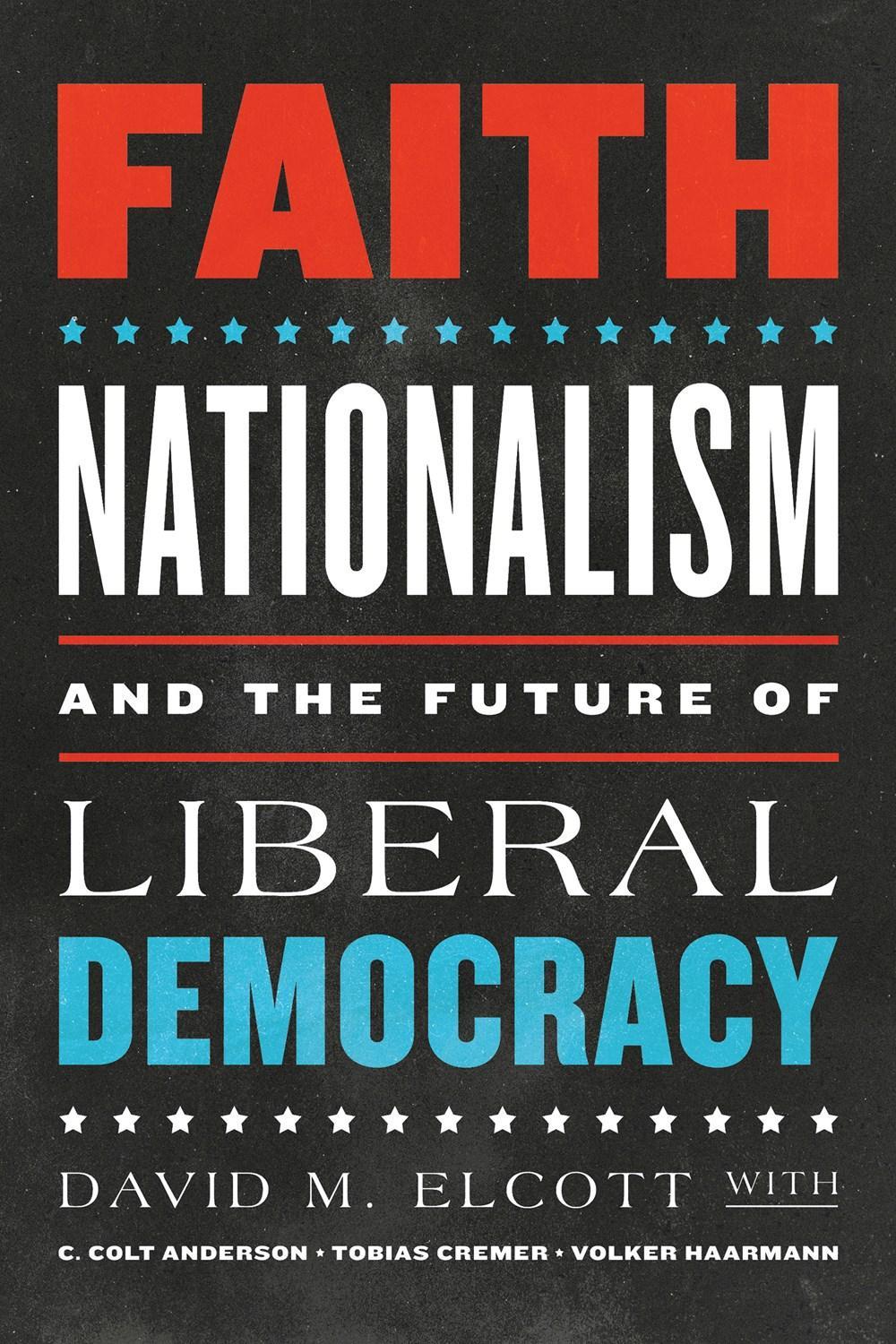
David M. Elcott, with C. Colt Anderson, Tobias Cremer, and Volker Haarmann
Summary
Faith, Nationalism, and the Future of Liberal Democracy highlights the use of religious identity to fuel the rise of illiberal, nationalist, and populist democracy.
In Faith, Nationalism, and the Future of Liberal Democracy, David Elcott, C. Colt Anderson, Tobias Cremer, and Volker Haarmann present a pragmatic and modernist exploration of how religion engages in the public square. Elcott and his co-authors are concerned about the ways religious identity is being used to foster the exclusion of individuals and communities from citizenship, political representation, and a role in determining public policy. They examine the ways religious identity is weaponized to fuel populist revolts against a political, social, and economic order that values democracy in a global and strikingly diverse world. Included is a history and political analysis of religion, politics, and policies in Europe and the United States that foster this illiberal rebellion.
The authors explore what constitutes a constructive religious voice in the political arena, even in nurturing patriotism and democracy, and what undermines and threatens liberal democracies. To lay the groundwork for a religious response, the book offers chapters showing how Catholicism, Protestantism, and Judaism can nourish liberal democracy. The authors encourage people of faith to promote foundational support for the institutions and values of the democratic enterprise from within their own religious traditions and to stand against the hostility and cruelty that historically have resulted when religious zealotry and state power combine.
Faith, Nationalism, and the Future of Liberal Democracy is intended for readers who value democracy and are concerned about growing threats to it, and especially for people of faith and religious leaders, as well as for scholars of political science, religion, and democracy.
Contributor Bio
David M. Elcott is a professor at SUNY and the Hudson Link and works with Hudson Link for Higher Education in Prison to teach college level classes to incarcerated individuals at Green Haven Correctional Facility
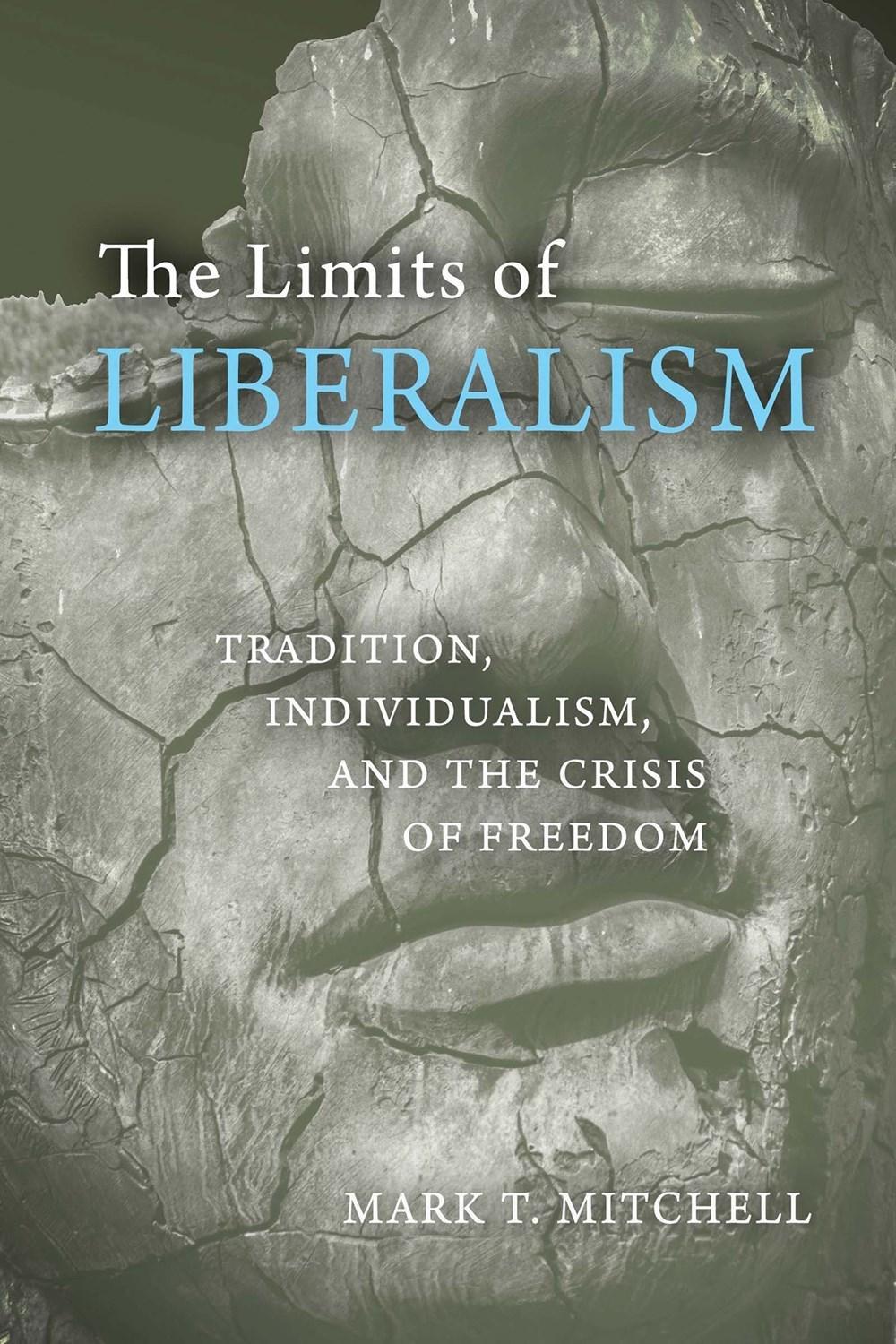
9780268104306
Pub Date: 2/15/25
$45.00 USD
340 Pages
Political Science / History & Theory
9 in H | 6 in W
NEW IN PAPERBACK
Mark T. Mitchell
Summary
In The Limits of Liberalism, Mark T. Mitchell argues that a rejection of tradition is both philosophically incoherent and politically harmful.
The Limits of Liberalism identifies why most modern thinkers have denied the essential role of tradition and explains how tradition can be restored to its proper place. Mitchell demonstrates that the rejection of tradition as an epistemic necessity has produced a false conception of the human person—the liberal self—which in turn has produced a false conception of freedom. Together, these false conceptions have facilitated both liberal cosmopolitanism and identity politics.
Mitchell uses the philosophies of Michael Oakeshott, Alasdair MacIntyre, and Michael Polanyi to construct a compelling argument for a reconstructed view of tradition and, as a result, a reconstructed view of freedom. The Limits of Liberalism reveals that only by finding an alternative to the liberal self can we escape the incoherencies and pathologies inherent therein.
Contributor Bio
Mark T. Mitchell is the dean of academic affairs at Patrick Henry College and co-founder of Front Porch Republic He is the author and co-editor of a number of books, including Plutocratic Socialism: The Future of Private Property and the Fate of the Middle Class.
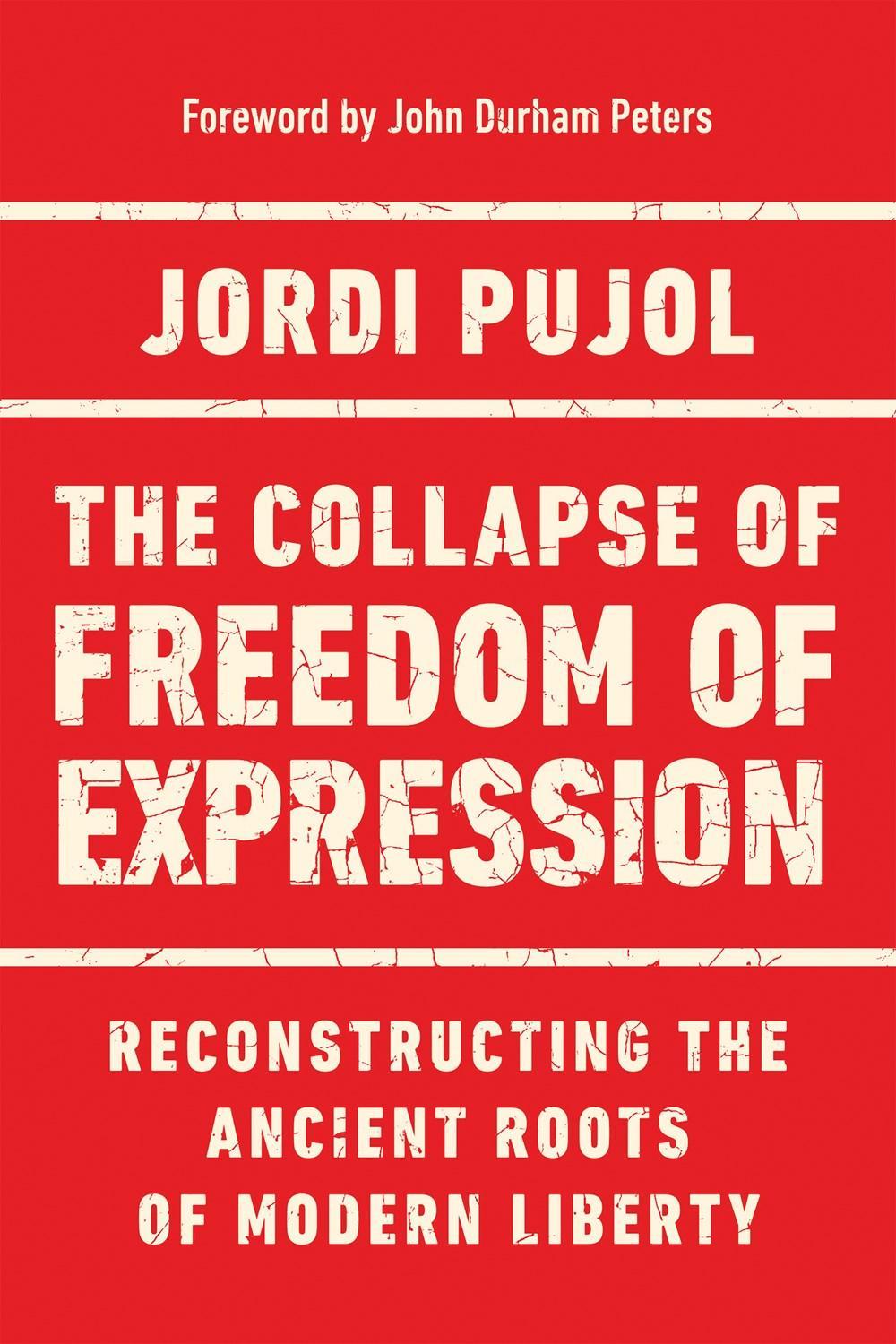
Reconstructing the Ancient Roots of Modern Liberty
Jordi Pujol
Summary
This book offers a holistic account of the problems posed by freedom of expression in our current times and offers corrective measures to allow for a more genuine exchange of ideas within the global society.
The topic of free speech is rarely addressed from a historical, philosophical, or theological perspective. In The Collapse of Freedom of Expression, Jordi Pujol explores both the modern concept of the freedom of expression based on the European Enlightenment and the deficiencies inherent in this framework. Modernity has disregarded the traditional roots of the freedom of expression drawn from Christianity, Greek philosophy, and Roman law, which has left the door open to the various forms of abuse, censorship, and restrictions seen in contemporary public discourse. Pujol proposes that we rebuild the foundations of the freedom of expression by returning to older traditions and incorporating both the field of pragmatics of language and theological and ethical concepts on human intentionality as new, complementary disciplines.
Pujol examines emblematic cases such as Charlie Hebdo, free speech on campus, and online content moderation to elaborate on the tensions that arise within the modern concept of freedom of expression. The book explores the main criticisms of the contemporary liberal tradition by communitarians, libertarians, feminists, and critical race theorists, and analyzes the gaps and contradictions within these traditions. Pujol ultimately offers a reconstruction project that involves bridging the chasm between the secular and the sacred and recognizing that religion is a font of meaning for millions of people, and as such has an inescapable place in the construction of a pluralist public sphere.
Contributor Bio
Jordi Pujol is an associate professor of media ethics and media law at the School of Church Communications in the Pontifical University of Santa Croce in Rome.
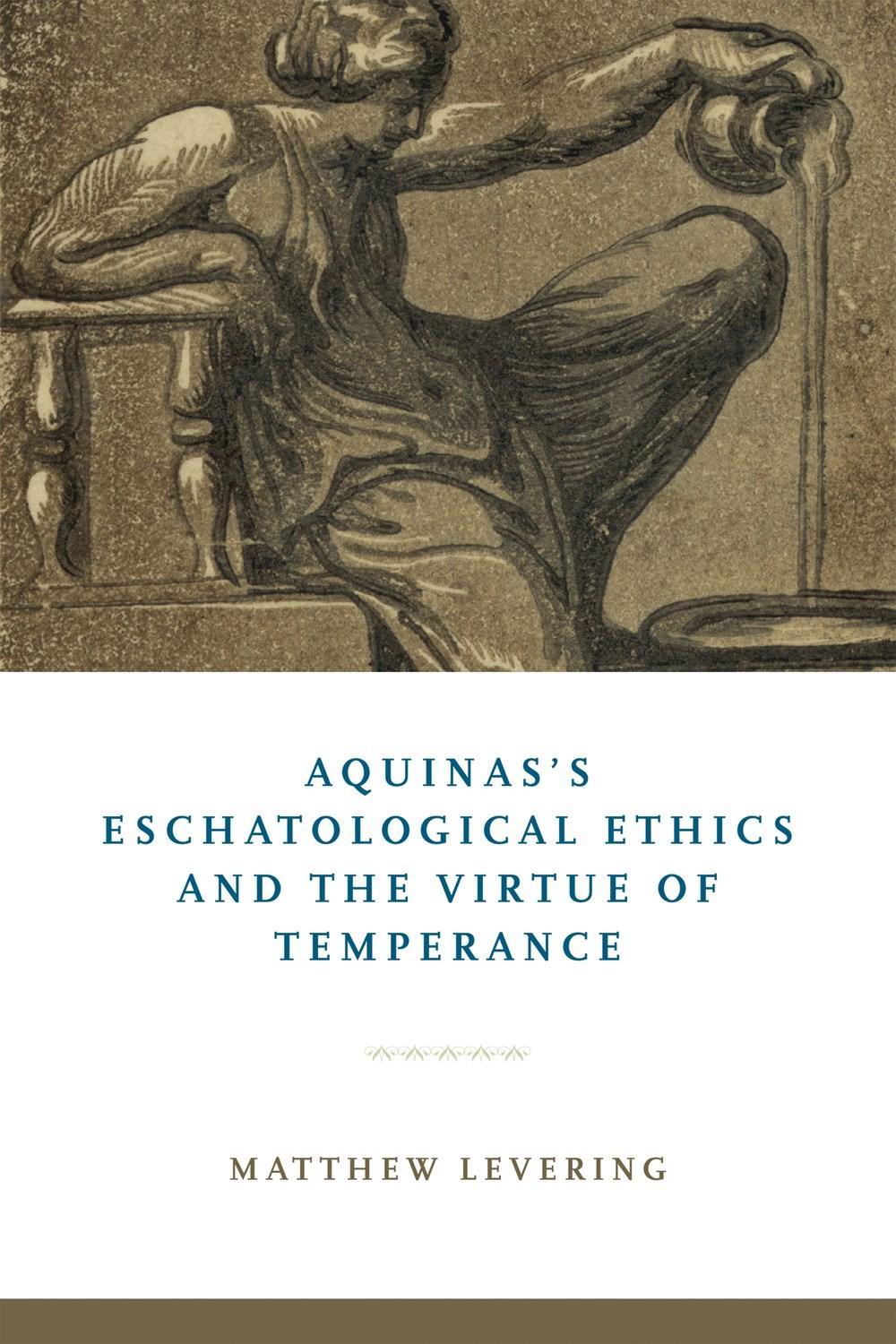
9780268106348 Pub Date: 1/15/25
$45.00
446
Matthew Levering
Summary
Matthew Levering offers a biblical and Thomistic portrait of the cardinal virtue of temperance and its allied virtues, in dialogue with an ecumenical range of theologians and scholars.
In Aquinas’s Eschatological Ethics and the Virtue of Temperance, Levering argues that Catholic ethics make sense only in light of the biblical worldview that Jesus has inaugurated the kingdom of God by pouring out his spirit. Jesus has made it possible for us to know and obey God’s law for human flourishing as individuals and communities. He has reoriented our lives toward the goal of beatific communion with him in charity, which affects the exercise of the moral virtues that pertain to human flourishing.
Without the context of the inaugurated kingdom, Catholic ethics as traditionally conceived will seem like an effort to find a middle ground between legalistic rigorism and relativistic laxism, which is especially the case with the virtue of temperance, the focus of Levering’s book. After an opening chapter on the eschatological/biblical character of Catholic ethics, the ensuing chapters engage Aquinas’s theology of temperance in the Summa theologiae, which identifies and examines a number of virtues associated with temperance. Levering demonstrates that the theology of temperance is profoundly biblical, and that Aquinas’s theology of temperance relies for its intelligibility upon Christ’s inauguration of the kingdom of God as the graced fulfillment of our created nature. The book develops new vistas for scholars and students interested in moral theology.
Contributor Bio
Matthew Levering is the James N. Jr. and Mary D. Perry Chair of Theology at Mundelein Seminary and co-director of the Chicago Theological Initiative. He is the author or editor of over fifty-five books, including Mary's Bodily Assumption
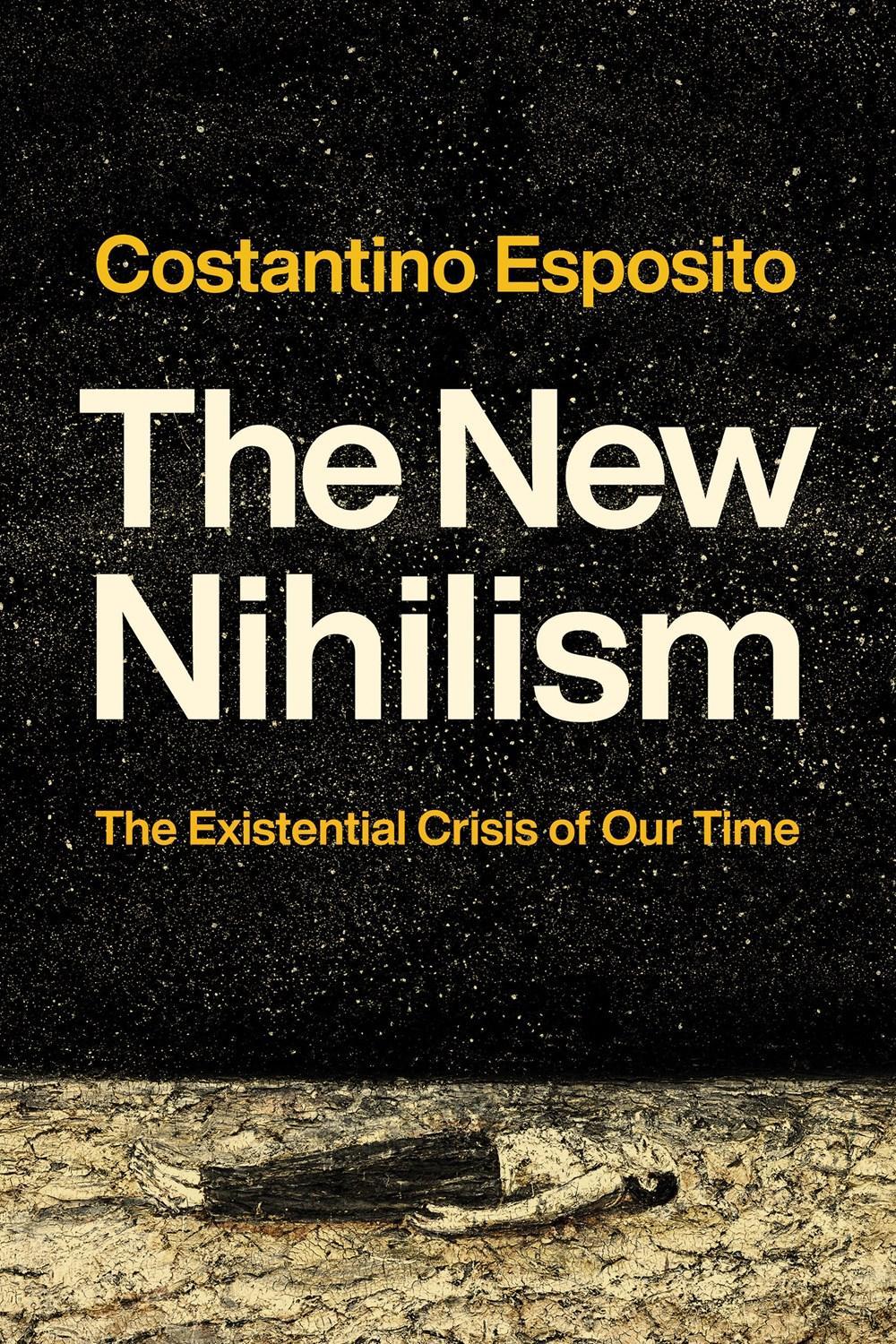
9780268207991
Pub Date: 11/1/24
$38.00
208 Pages
Costantino Esposito
In this highly engaging book, Costantino Esposito argues that nihilism is not merely the loss of the classic values of the Western tradition—rather, it presents a critical opportunity to ask pertinent, timely questions about the meaning of self and the world.
Nihilism is a problem that has troubled the culture, philosophy, and worldview of people and societies for more than a century—a problem that seemed, thanks to the advance of cultural relativism, to have become an obvious and globally shared condition. However, in recent years, the conversation around nihilism has begun to change. The questions that nihilism once declared impossible to answer—questions about the ultimate meaning of self and reality, the truth of the person and history, our desire to understand ourselves in relation to the infinite—are reemerging in today’s culture and proving to be profound, reasonable, and of vital importance.
In its classical form, nihilism is the loss of values and ideals, but its modern iteration manifests as an irreducible need: more basic but far more challenging. Esposito suggests that rather than being an obstacle, nihilism can become an opportunity to search for true meaning for our experiences in the world. With philosophical rigor, he intercepts and narrates this new phenomenon, focusing on social trends, poetic voices, philosophical and scientific visions, ethical problems, and aesthetic experiences. The New Nihilism unravels and makes sense of the real stakes of the existential crisis of our time.
Contributor Bio
Costantino Esposito is professor of history of philosophy and history of metaphysics at University of Bari Aldo Moro and at the Institute of Philosophical Studies of the Università della Svizzera Italiana (USI) in Lugano. He is the author of many books and articles, including Introduzione a Heidegger

Józef Tischner, Artur Rosman
Summary
The Philosophy of Drama provides an in-depth and erudite exploration of human existence as a dramatic existence, interpreted in terms of encounter, dialogue, reciprocity, erring, temptation, condemnation, and justification.
In this magnum opus, Catholic philosopher Józef Tischner offers a philosophical interpretation of the human experience and articulates a metaphysics of good and evil, arguing that the drama of existence is revealed most clearly through the painful encounter with evil. Long overdue for translation into English, The Philosophy of Drama is one of the most important works of Polish philosophy to date and a major contribution to phenomenology and the philosophy of dialogue.
Tischner writes of a drama that is at once personal and social, that is bound both by the stage of the present world and by the flow of time. It supposes human freedom while also recognizing the way in which human beings refuse to take responsibility for their freedom. It is a drama between divine and human freedom, on the one hand, and between the choice for good and evil, between humans as cursed or blessed, on the other. The Philosophy of Drama addresses the profound question of why we should be responsible for one another and for the world in which we live and is essential reading for anyone trying to understand what it is to be human.
Contributor Bio
Józef Tischner (1931–2000) was one of the most influential Polish philosophers of the twentieth century and the semi-official chaplain of Solidarność. He was a Roman Catholic priest, served as professor at the Pontifical Theological Academy in Krakow, and was a cofounder of the Institut für die Wissenschaften vom Menschen in Vienna.
Artur Rosman is an associate research professor at the University of Notre Dame and the editor-in-chief of Church Life Journal
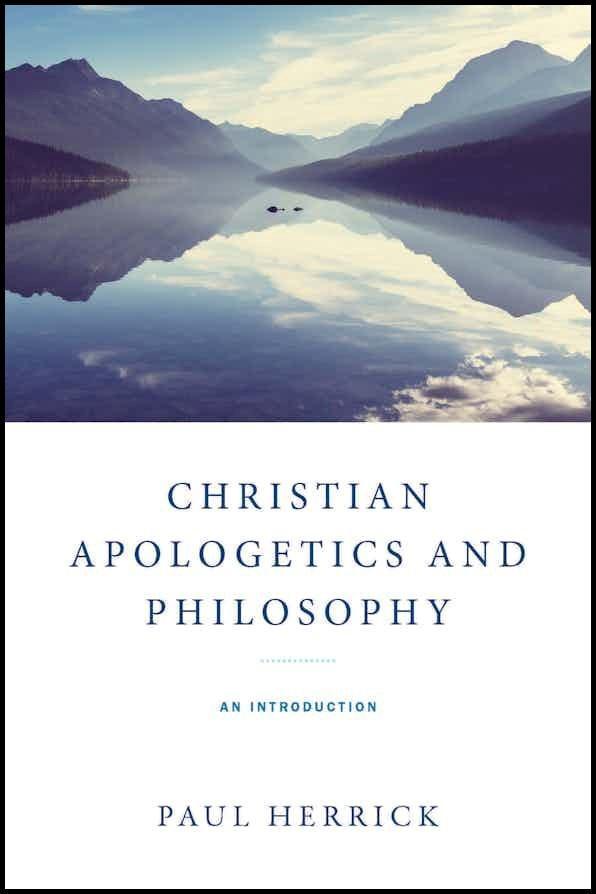
9780268208936
Pub Date: 10/1/24
$38.00 USD
Paperback
254 Pages
/ Religious 9 in H | 6 in W
An Introduction
Paul Herrick
Summary
A highly readable introduction to Christian apologetics that joins contemporary analytic philosophy with modern biblical scholarship.
In this book, Paul Herrick presents the basics of classical Christian apologetics in the form of an inference to the best explanation argument that builds from the book’s first chapter to its last. Drawing on contemporary philosophy, logic, and biblical scholarship, Herrick incorporates thoughts from Socrates, Plato, Thomas Aquinas, and C. S. Lewis, as well as scholars such as William Lane Craig, J. P. Moreland, Richard Swinburne, and Craig Blomberg, to present a multifaceted argument for the Christian faith. With sections on the Socratic method, the Christian examination of conscience, the Big Bang, miracles, the historical reliability of the New Testament, the resurrection of Christ, and more, this book promises to be useful intellectually and spiritually for seekers, doubters, and those already in the faith.
Contributor Bio
Paul Herrick is professor of philosophy at Shoreline Community College. He is the author of multiple textbooks in formal logic, critical thinking, and philosophy, including The Many Worlds of Logic, Think with Socrates, and Philosophy, Reasoned Belief, and Faith (University of Notre Dame Press, 2022).
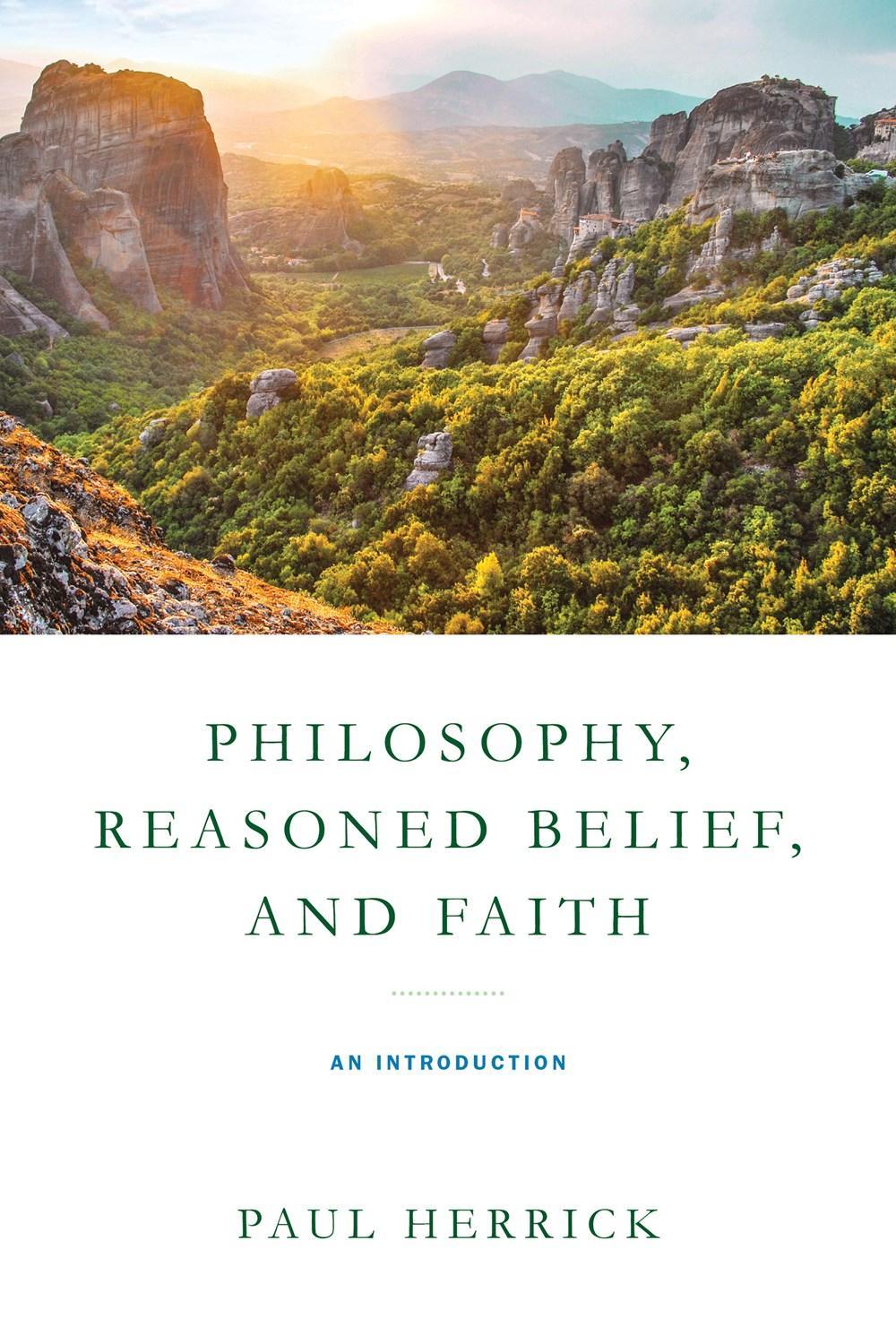
An Introduction
Paul Herrick
Summary
This clear, readable introduction to philosophy presents a traditional theistic view of the existence of God.
There are many fine introductions to philosophy, but few are written for students of faith by a teacher who is sensitive to the intellectual challenges they face studying in an environment that is often hostile to religious belief. Many introductory texts present short, easy-to-refute synopses of the traditional arguments for God’s existence, the soul, free will, and objective moral value rooted in God’s nature, usually followed by strong objections stated as if they are the last word. This formula may make philosophy easier to digest, but it gives many students the impression that there are no longer any good reasons to accept the beliefs just mentioned.
Philosophy, Reasoned Belief, and Faith is written for philosophy instructors who want their students to take a deeper look at the classic theistic arguments and who believe that many traditional views can be rigorously defended against the strongest objections. The book is divided into four sections, focusing on philosophy of religion, an introduction to epistemology, philosophy of the human person, and philosophical ethics. The text challenges naturalism, the predominant outlook in the academic world today, while postmodernist relativism and skepticism are also examined and rejected. Students of faith—and students without faith—will deepen their worldviews by thoughtfully examining the philosophical arguments that are presented in this book. Philosophy, Reasoned Belief, and Faith will appeal to Christian teachers, analytic theists, home educators, and general readers interested in the classic arguments supporting a theistic worldview.
Contributor Bio
Paul Herrick is professor of philosophy at Shoreline Community College. He is the author of six previous textbooks in philosophy and logic, including The Many Worlds of Logic, Introduction to Logic, and Think with Socrates: An Introduction to Critical Thinking
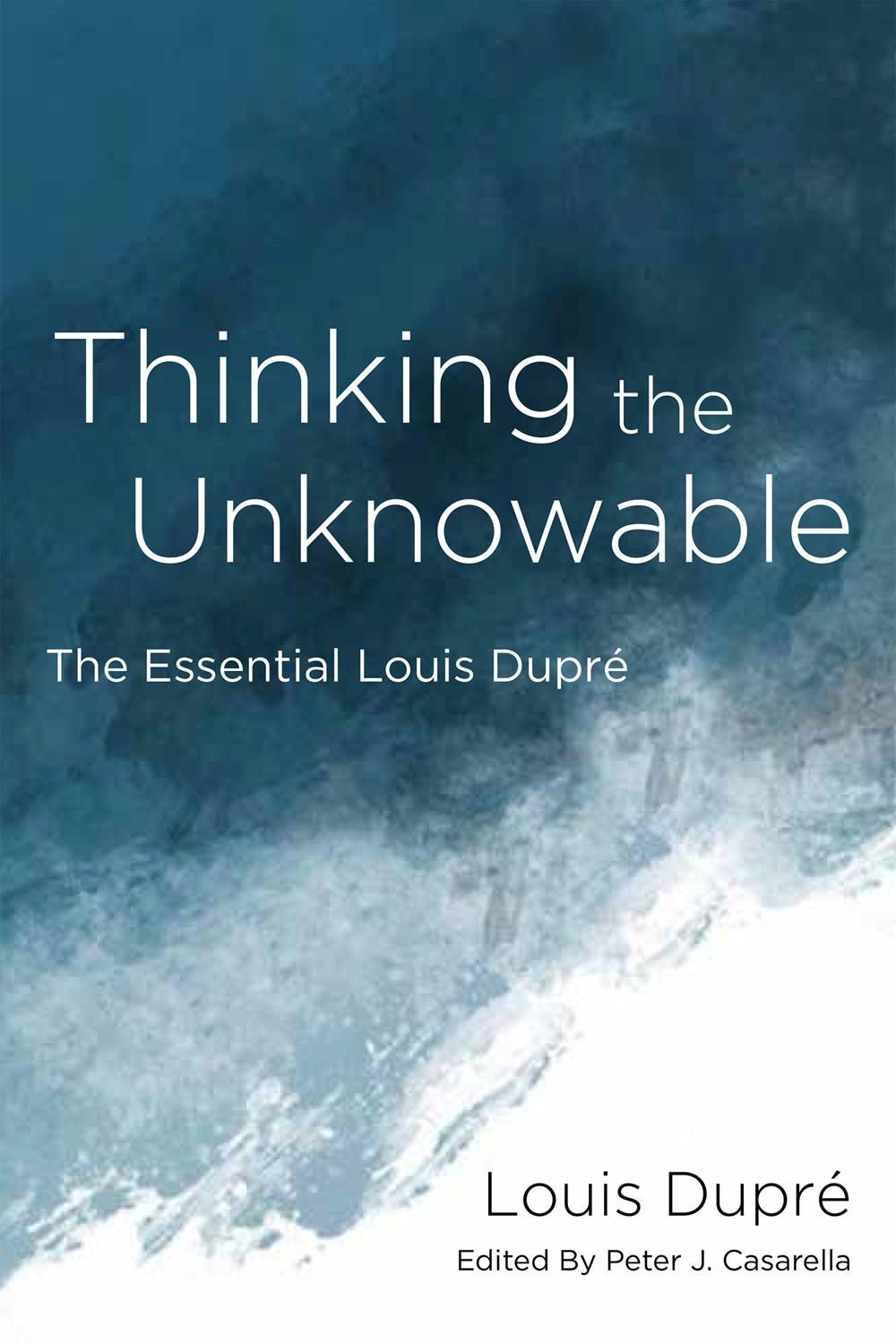
9780268207953
Pub Date: 11/15/24
$65.00 USD
208 Pages Philosophy / Movements
9 in H | 6 in W
The Essential Louis Dupré
Louis Dupré, Peter J. Casarella
Summary
Written throughout Louis Dupré’s life, Thinking the Unknowable explores the relationship between faith and metaphysics, charting the course for an innovative Christian philosophy of religion.
Louis Dupré’s Thinking the Unknowable offers a sophisticated response to the subjectivist ills of modern philosophy. Drawing on a diverse host of philosophers, theologians, and phenomenologists, Dupré seeks to open up a space for faith in contemporary philosophy of religion by arguing that metaphysics cannot claim authority in the realm of the transcendent. Instead, Dupré shows that philosophers must learn to accommodate mystery in their metaphysical frameworks.
Edited and introduced by Peter J. Casarella, prominent theologian and student of Dupré, the book unfolds in four parts. Dupré establishes the foundations for a new theology of language, drawing inspiration from two sources: humanist theological hermeneutics and deist biblical spirituality. The second part addresses the idea of God in modern philosophy, taking Hegel’s philosophy of religion as its starting point. The third deals with the phenomenology of religion, focusing primarily on the work of Edmund Husserl and Martin Heidegger. In the fourth part, Dupré turns to the concept of mysticism, offering a sophisticated reflection on the possibility of acknowledging a transcendent horizon to human knowing in a secular age. Readers of this volume will be guided across the bridge from philosophy to faith and back again, discovering new worlds of meaning and expressions of truth.
Contributor Bio
Louis Dupré was the T. Lawrason Riggs Professor Emeritus of Religious Studies at Yale. He was the author of Religion and the Rise of Modern Culture and The Quest of the Absolute: Birth and Decline of European Romanticism
Peter J. Casarella is a professor of theology at Duke Divinity School.
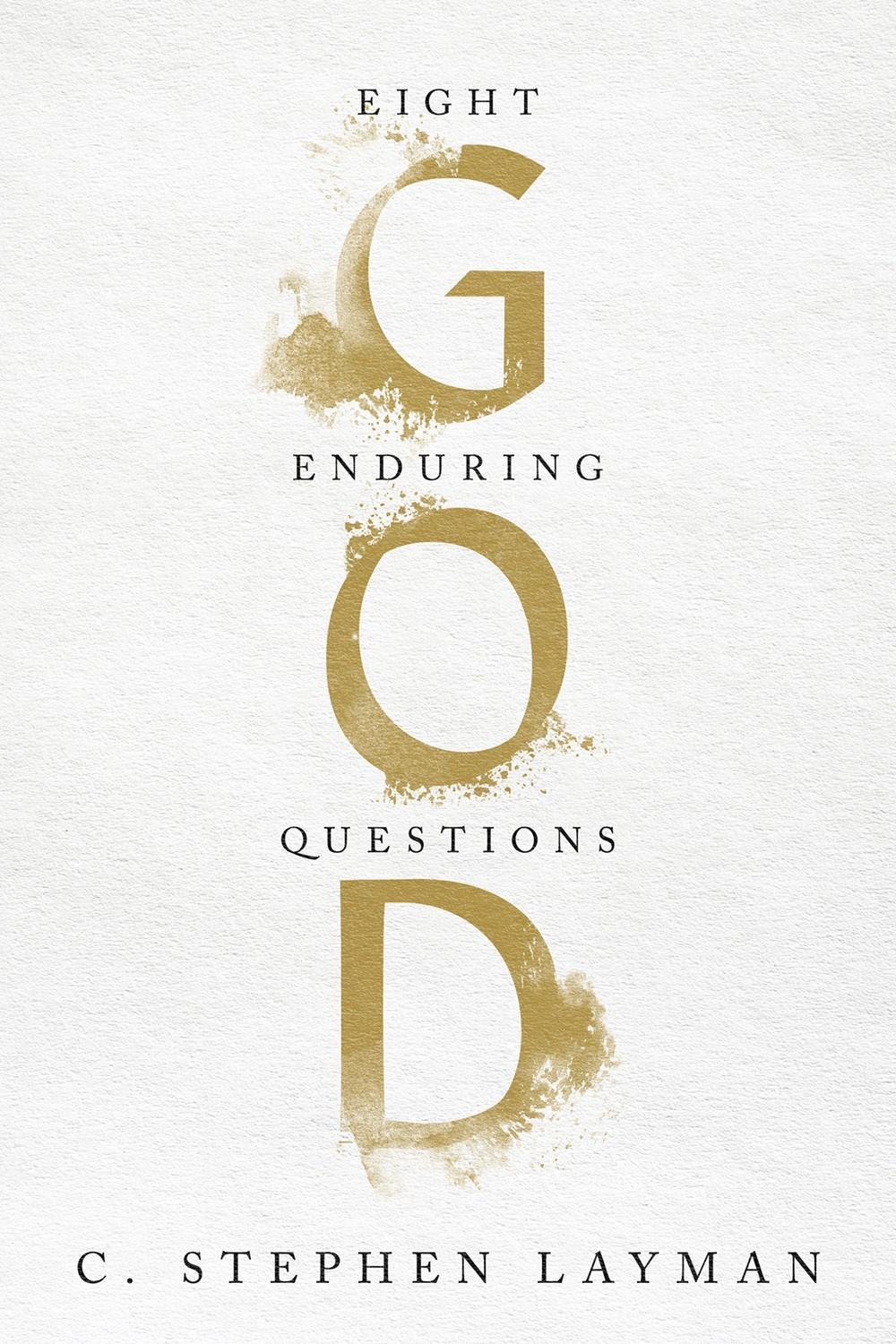
C.Stephen Layman
Summary
This book explores a wide range of philosophical issues in their connection with theism, including views of free will, ethical theories, theories of mind, naturalism, and karma-plus-reincarnation.
In this clear and logical guide, C. Stephen Layman takes up eight important philosophical questions about God: Does God exist? Why does God permit evil? Why think God is good? Why is God hidden? What is God’s relationship to ethics? Is divine foreknowledge compatible with human free will? Do humans have souls? Does reincarnation provide the best explanation of suffering? Based on more than thirty years of experience in teaching undergraduates and in leading philosophical discussions related to God, Layman has arranged the text to deal with each of these eight questions in one or two chapters apiece.
Many philosophical works take up questions about God, but the chapters of this book plunge the reader very quickly into the arguments relevant to each question. Layman presents the arguments cogently and simply, yet without oversimplifying the issues. The book emphasizes strengths and weaknesses of both theism and its metaphysical rivals. Readers will gain a clearer understanding of theism and naturalism, and of their sometimes surprising implications. The book can be used as a text in philosophy of religion and introductory philosophy courses. Professional philosophers will find significant, novel arguments in many of the chapters.
Contributor Bio
C.Stephen Layman is professor emeritus of philosophy at Seattle Pacific University. He is the author of five books, including The Shape of the Good (University of Notre Dame Press, 1994) and, most recently, Philosophical Approaches to Atonement, Incarnation, and the Trinity
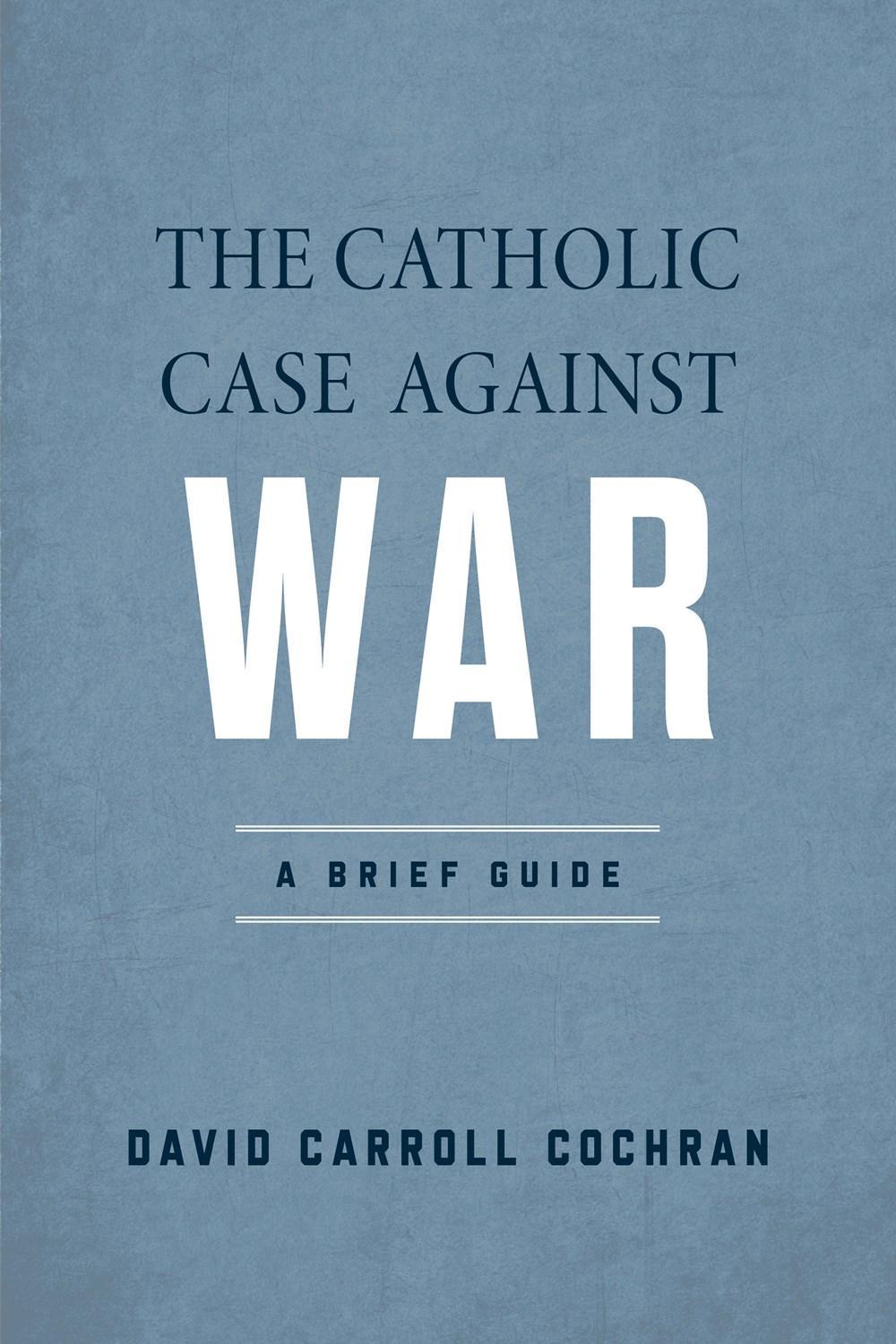
9780268207892
Pub Date: 3/1/24
$32.00
David Carroll Cochran
Summary
The Catholic Case against War demonstrates how the Catholic mantra “Never again war!” reflects a set of powerfully realistic teachings on war and peace.
Over the last five decades, the Catholic Church has emerged as a powerful critic of war and as an advocate for its alternatives. At the same time, researchers of armed conflict have produced a considerable body of scholarship on war and its prevention. The Catholic Case against War compares these seemingly disparate lines of thought and finds a remarkable harmony between the two.
Drawing on years of Vatican documents and papal statements, political scientist David Carroll Cochran clearly presents the key elements of the Church’s case against war. Far from a naïve, optimistic call for peace, these teachings are consistent with the empirical research on the realities of contemporary warfare. The result is a look not only at the explicit moral case against war developed by the Vatican but also at its remarkable realism and relevance to world conflict today.
Contributor Bio
David Carroll Cochran is professor of politics and co-director of the peace and justice minor at Loras College. He is the author or editor of five previous books, most recently The Catholic Church in Ireland Today and Catholic Realism and the Abolition of War.

The Fate of Inwardness and the Return of the Ancient Arts of Living Elisabeth Lasch-Quinn
Summary
Despite the flood of self-help guides and our current therapeutic culture, feelings of alienation and spiritual longing continue to grip modern society. In this book, Elisabeth Lasch-Quinn offers a fresh solution: a return to classic philosophy and the cultivation of an inner life.
The ancient Roman philosopher Cicero wrote that philosophy is ars vitae, the art of living. Today, signs of stress and duress point to a full-fledged crisis for individuals and communities while current modes of making sense of our lives prove inadequate. Yet, in this time of alienation and spiritual longing, we can glimpse signs of a renewed interest in ancient approaches to the art of living.
In this ambitious and timely book, Elisabeth Lasch-Quinn engages both general readers and scholars on the topic of well-being. She examines the reappearance of ancient philosophical thought in contemporary American culture, probing whether new stirrings of Gnosticism, Stoicism, Epicureanism, Cynicism, and Platonism present a true alternative to our current therapeutic culture of self-help and consumerism, which elevates the self’s needs and desires yet fails to deliver on its promises of happiness and healing. Do the ancient philosophies represent a counter-tradition to today’s culture, auguring a new cultural vibrancy, or do they merely solidify a modern way of life that has little use for inwardness—the cultivation of an inner life—stemming from those older traditions? Tracing the contours of this cultural resurgence and exploring a range of sources, from scholarship to self-help manuals, films, and other artifacts of popular culture, this book sees the different schools as organically interrelated and asks whether, taken together, they can point us in important new directions.
Contributor Bio
Elisabeth Lasch-Quinn is professor of history at Syracuse University. She is the author of a number of essays and books, including Black Neighbors (winner of the Berkshire prize) and Race Experts.

9780268205416
Pub Date: 9/15/23
$40.00 USD
210 Pages
Jean-Miguel Garrigues O.P., Gregory Casprini O.S.B.
Summary
With rich theological language that will appeal to a broad audience, this beautifully written book offers a hopeful interpretation of the problem of evil that plagues our time.
In God without the Idea of Evil, well-known French Catholic theologian Jean-Miguel Garrigues, O.P., seeks to rise above the apparent contradiction of faith and the existence of evil, suffering, and death. Originally published in France as Dieu sans idée du mal in 1982, a revised second edition came out in 1990, and in 2016 the book was released again with a foreword by Cardinal Christoph Schönborn, which serves as the basis for the present translation. At its heart, this book contemplates the mystery of our election by God, which is expressed in the very fact of our existence. Garrigues addresses compelling theological topics—the concept of moral evil, the “redemptive charity” of Christ, the “journey” of human liberty, and the process of “nature becoming history”—with precise, poetically charged language that remains accessible.
Garrigues makes a passionate defense of the innocence of God in the face of moral evil. By enveloping us in his look, as Cardinal Schönborn writes in the foreword, “God encounters us in the very gift of being that he bestows upon us, and his eyes do not see our sin.” The book invites us to rediscover in the eyes of Jesus the eternal, continually renewed charm of the divine gaze. We are illumined and inspired by a vision of God who “does not see us through the evil in us,” but rather loves us from the infinite depths of his creative charity.
Contributor Bio
Jean-Miguel Garrigues, O.P., is professor emeritus at Domuni Universitas in Toulouse and a member of the Pontifical Academy of Theology. He is the author of eighteen books, including Une morale souple mais non sans boussole.
Gregory Casprini, O.S.B., has translated numerous works from French into English, including Dom Eugène Cardine’s An Overview of Gregorian Chant and Dom Jacques Hourlier’s Reflections on the Spirituality of Gregorian Chant.

Authority
Peter Adamson
How do we judge whether we should be willing to follow the views of experts or whether we ought to try to come to our own, independent views? This book seeks the answer in medieval philosophical thought.
In this engaging study into the history of philosophy and epistemology, Peter Adamson provides an answer to a question as relevant today as it was in the medieval period: how and when should we turn to the authoritative expertise of other people in forming our own beliefs? He challenges us to reconsider our approach to this question through a constructive recovery of the intellectual and cultural traditions of the Islamic world, the Byzantine Empire, and Latin Christendom.
Adamson begins by foregrounding the distinction in Islamic philosophy between taqlīd, or the uncritical acceptance of authority, and ijtihād, or judgment based on independent effort, the latter of which was particularly prized in Islamic law, theology, and philosophy during the medieval period. He then demonstrates how the Islamic tradition paves the way for the development of what he calls a “justified taqlīd,” according to which one develops the skills necessary to critically and selectively follow an authority based on their reliability. The book proceeds to reconfigure our understanding of the relation between authority and independent thought in the medieval world by illuminating how women found spaces to assert their own intellectual authority, how medieval writers evaluated the authoritative status of Plato and Aristotle, and how independent reasoning was deployed to defend one Abrahamic faith against the other. This clear and eloquently written book will interest scholars in and enthusiasts of medieval philosophy, Islamic studies, Byzantine studies, and the history of thought.
Contributor Bio
Peter Adamson is professor of philosophy at Ludwig-Maximilians-Universität München.
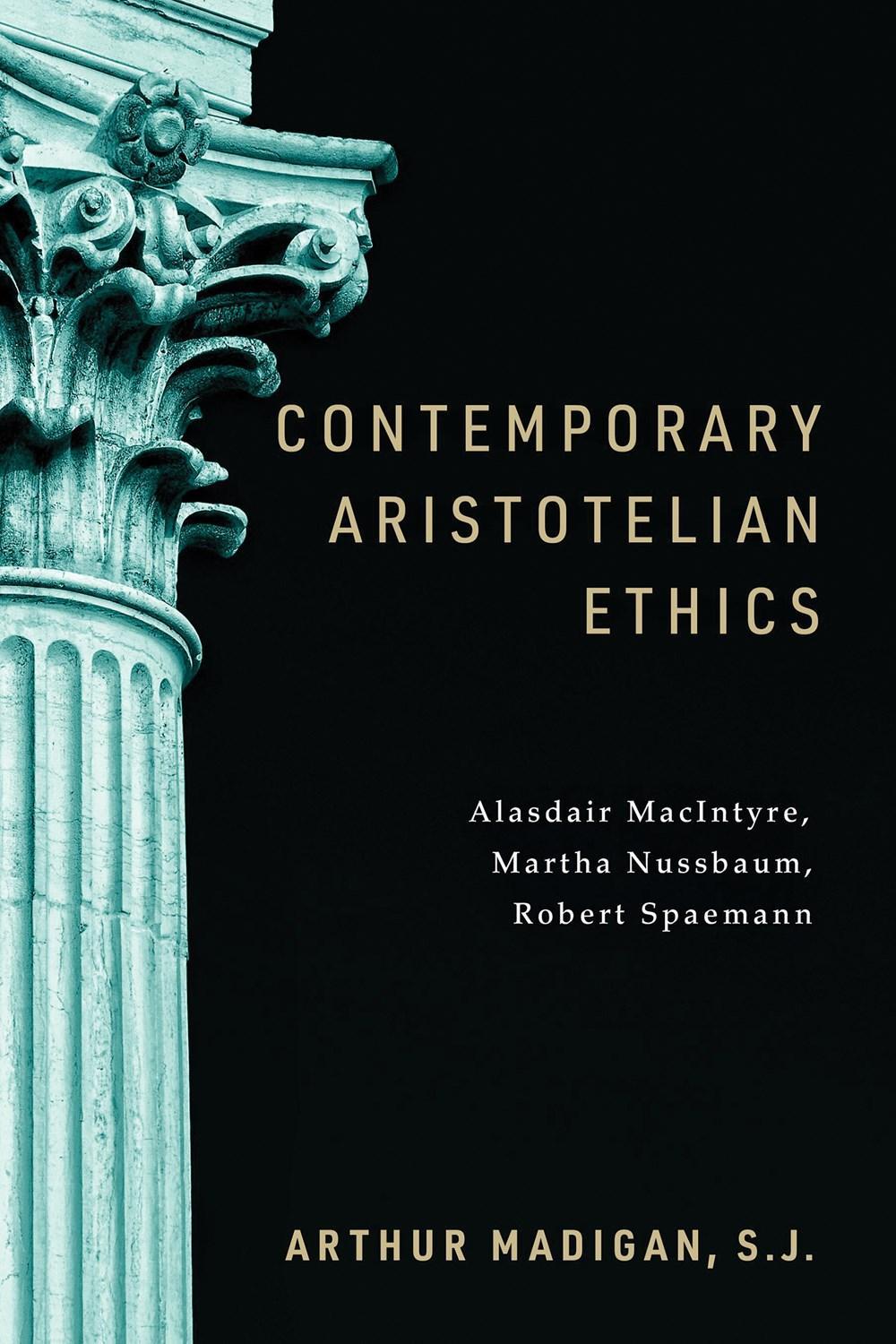
9780268207595 Pub
$65.00
Alasdair MacIntyre, Martha Nussbaum, Robert Spaemann
Arthur Madigan S.J.
Summary
This volume provides a thorough introduction to three of the twentieth century’s most influential proponents of Aristotle’s moral philosophy.
Arthur Madigan’s Contemporary Aristotelian Ethics examines the work of Alasdair MacIntyre, Martha Nussbaum, and Robert Spaemann in the context of twentieth-century Anglo-American moral philosophy. By surveying the ways in which these three philosophers appropriate Aristotle, Madigan illustrates two important points: first, that the most pressing problems in contemporary moral philosophy can be addressed using the Aristotelian tradition and, second, that the Aristotelian tradition does not speak with one voice. Madigan demonstrates that Aristotelian moral philosophy is divided on important issues, such as the value of liberal modernity, the character and provenance of our current moral landscape, and the role of nature in Aristotle’s ethics.
Through his examination of MacIntyre, Nussbaum, and Spaemann, Madigan offers a vision for the future of Aristotelian moral philosophy, urging today’s philosophers to set a clear educational agenda, to continue refining their concepts and intuitions, and to engage with new conversation partners from other philosophical traditions.
Contributor Bio
Arthur Madigan, S.J., is professor emeritus of philosophy at Boston College. He is the author and translator of many books and essays about Greek philosophy, including Aristotle’s Metaphysics: Books B and K 1–2

An Intellectual Biography
Émile Perreau-Saussine, Nathan J. Pinkoski
Summary
This award-winning biography presents an illuminating introduction to Alasdair MacIntyre and locates his thinking in the intellectual milieu of twentieth-century philosophy.
Winner of the prestigious 2005 Philippe Habert Prize, the late Émile Perreau-Saussine’s Alasdair MacIntyre: Une biographie intellectuelle stands as a definitive introduction to the life and work of one of today’s leading moral philosophers. With Nathan J. Pinkoski’s translation, this long-awaited, critical examination of MacIntyre’s thought is now available to English readers for the first time, including a foreword by renowned philosopher Pierre Manent.
Amid the confusions and contradictions of our present philosophical landscape, few have provided the clarity of thought and shrewdness of diagnosis like Alasdair MacIntyre. In this study, Perreau-Saussine guides his readers through MacIntyre’s lifelong project by tracking his responses to liberalism’s limitations in light of the human search for what is good and true in politics, philosophy, and theology. The portrait that emerges is one of an intellectual giant who comes to oppose modern liberal individualism’s arguably singular focus on averting evil at the expense of a concerted pursuit of human goods founded upon moral and practical reasoning. Although throughout his career MacIntyre would engage with a number of theoretical and practical standpoints in service of his critique of liberalism, not the least of which was his early and later abandoned dalliance with Marxism, Perreau-Saussine convincingly shows how the Scottish philosopher came to hold that Aristotelian Thomism provides the best resources to counter what he perceives as the failure of the liberal project.
Contributor Bio
Émile Perreau-Saussine (1972–2010) was a lecturer in the Department of Politics and International Studies at the University of Cambridge.
Nathan J. Pinkoski is a research fellow and director of academic programs at the Zephyr Institute.
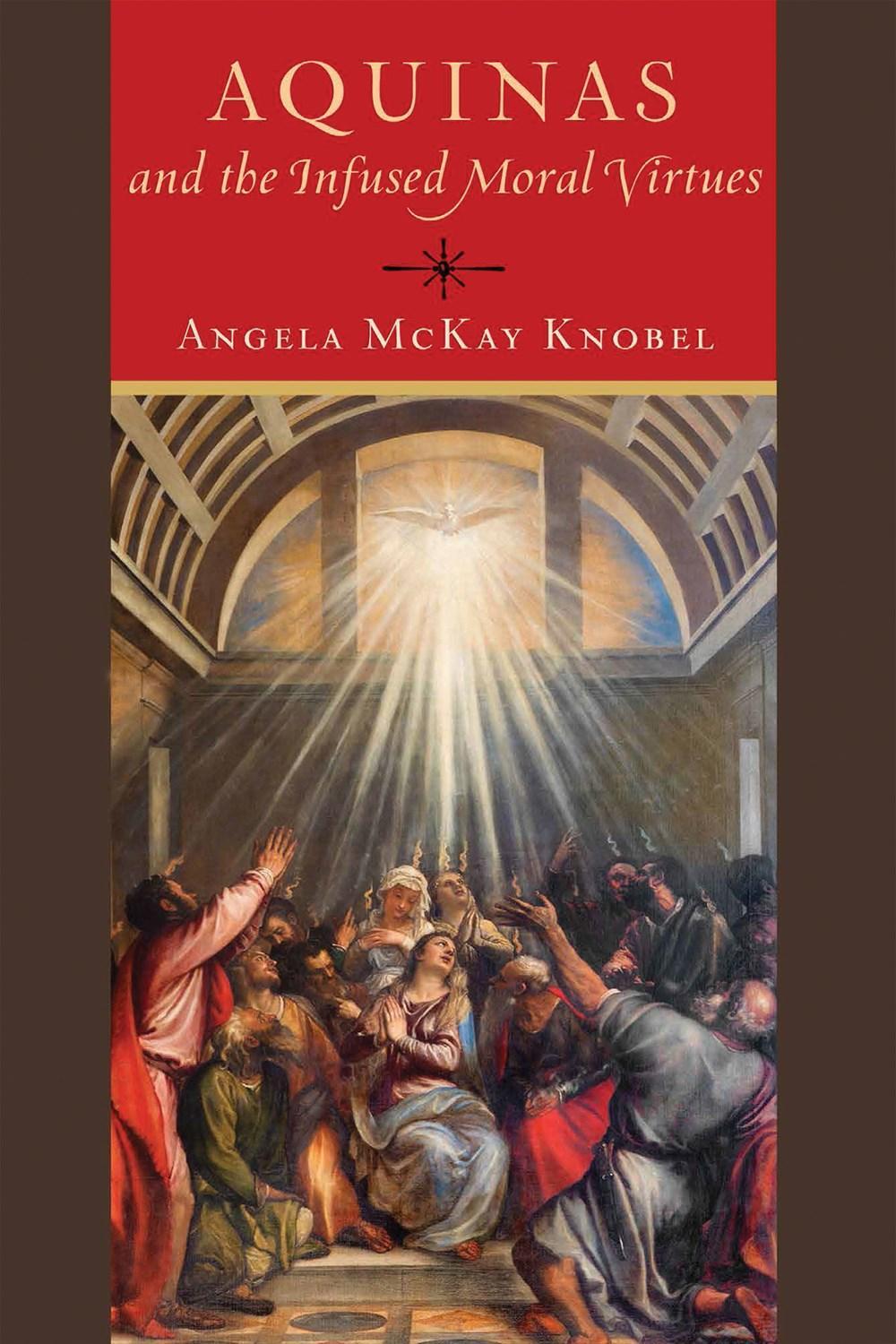
9780268201104
Pub Date: 2/15/24
$45.00 USD
228 Pages Religion / Christian
9 in H | 6 in W
Angela McKay Knobel
Summary
This study locates Aquinas’s theory of infused and acquired virtue in his foundational understanding of nature and grace.
Aquinas holds that all the virtues are bestowed on humans by God along with the gift of sanctifying grace. Since he also holds, with Aristotle, that we can create virtuous dispositions in ourselves through our own repeated good acts, a question arises: How are we to understand the relationship between the virtues God infuses at the moment of grace and virtues that are gradually acquired over time? In this important book, Angela McKay Knobel provides a detailed examination of Aquinas’s theory of infused moral virtue, with special attention to the question of how the infused and acquired moral virtues are related. Part 1 examines Aquinas’s own explicit remarks about the infused and acquired virtues and considers whether and to what extent a coherent “theory” of the relationship between the infused and acquired virtues can be found in Aquinas. Knobel argues that while Aquinas says almost nothing about how the infused and acquired virtues are related, he clearly does believe that the “structure” of the infused virtues mirrors that of the acquired in important ways. Part 2 uses that structure to evaluate existing interpretations of Aquinas and argues that no existing account adequately captures Aquinas’s most fundamental commitments. Knobel ultimately argues that the correct account lies somewhere between the two most commonly advocated theories. Written primarily for students and scholars of moral philosophy and theology, the book will also appeal to readers interested in understanding Aquinas’s theory of virtue.
Contributor Bio
Angela McKay Knobel is associate professor of philosophy at the University of Dallas. She is co-editor of Character: New Directions from Philosophy, Psychology, and Theology.

Christianity, Modernity, and the Arts
Mark William Roche
Summary
This book probes the intersection of the beautiful and the ugly, offering a systematic framework to understand, interpret, and evaluate how ugliness can contribute to beautiful art.
Many great artworks include elements of ugliness: repugnant content, disproportionate forms, unresolved dissonance, and unintegrated parts. Mark William Roche’s authoritative monograph Beautiful Ugliness: Christianity, Modernity, and the Arts challenges current practices of the dominant aesthetic schools by exploring the role of ugliness in art and literature. Roche offers a comprehensive and unique framework that integrates philosophical and theological reflection, intellectual-historical analysis, and interpretations of a large number of works from the arts. The study is driven by the recognition that, though ugliness is usually understood as the opposite of beauty, ugliness nonetheless contributes significantly to the beauty of many artworks.
Roche’s analysis unfolds in three parts. The first offers a refreshing conceptual analysis of ugliness in art. The second considers the history of ugliness in art and literature, with special attention to its role in Christian art and its central place in modern and contemporary art. The third synthesizes earlier material, offering a taxonomy of beautiful ugliness derived from Hegelian philosophical categories. Roche mesmerizes the reader with an extraordinary range of literary scholarship and expertise, with a particular focus on English, Latin, and German literature, and with a broad range of analyzed phenomena, including fine arts, architecture, and music.
Including 63 color illustrations, Beautiful Ugliness will draw in readers from multiple disciplines as well as those from beyond the academy who wish to make sense of today’s complex art world.
Contributor Bio
Mark William Roche is the Rev. Edmund P. Joyce, C.S.C., Professor of German Language and Literature, concurrent professor of philosophy, and former dean of the College of Arts and Letters at the University of Notre Dame.

9780268202484
Pub Date: 6/1/22
$80.00 USD
Hardcover
812 Pages
15 b&w, 36 color illustrations
Philosophy / Religious
10 in H | 7 in W
Thomas Pfau
Summary
Thomas Pfau’s study of images and visual experience is a tour de force linking Platonic metaphysics to modern phenomenology and probing literary, philosophical, and theological accounts of visual experience from Plato to Rilke.
Incomprehensible Certainty presents a sustained reflection on the nature of images and the phenomenology of visual experience. Taking the “image” (eikōn) as the essential medium of art and literature and as foundational for the intuitive ways in which we make contact with our “lifeworld,” Thomas Pfau draws in equal measure on Platonic metaphysics and modern phenomenology to advance a series of interlocking claims. First, Pfau shows that, beginning with Plato’s later dialogues, being and appearance came to be understood as ontologically distinct from (but no longer opposed to) one another. Second, in contrast to the idol that is typically gazed at and visually consumed as an object of desire, this study positions the image as a medium whose intrinsic abundance and excess reveal to us its metaphysical function—namely, as the visible analogue of an invisible, numinous reality. Finally, the interpretations unfolded in this book (from Plato, Plotinus, Pseudo-Dionysius, John Damascene via Bernard of Clairvaux, Bonaventure, Julian of Norwich, and Nicholas of Cusa to modern writers and artists such as Goethe, Ruskin, Turner, Hopkins, Cézanne, and Rilke) affirm the essential complementarity of image and word, visual intuition and hermeneutic practice, in theology, philosophy, and literature. Like Pfau’s previous book, Minding the Modern, Incomprehensible Certainty is a major work. With over fifty illustrations, the book will interest students and scholars of philosophy, theology, literature, and art history.
Contributor Bio
Thomas Pfau is the Alice Mary Baldwin Professor of English at Duke University, with a secondary appointment on the Duke Divinity School faculty. He is the author, editor, and translator of twelve books, including Minding the Modern: Human Agency, Intellectual Traditions, and Responsible Knowledge (University of Notre Dame Press, 2013, 2015).
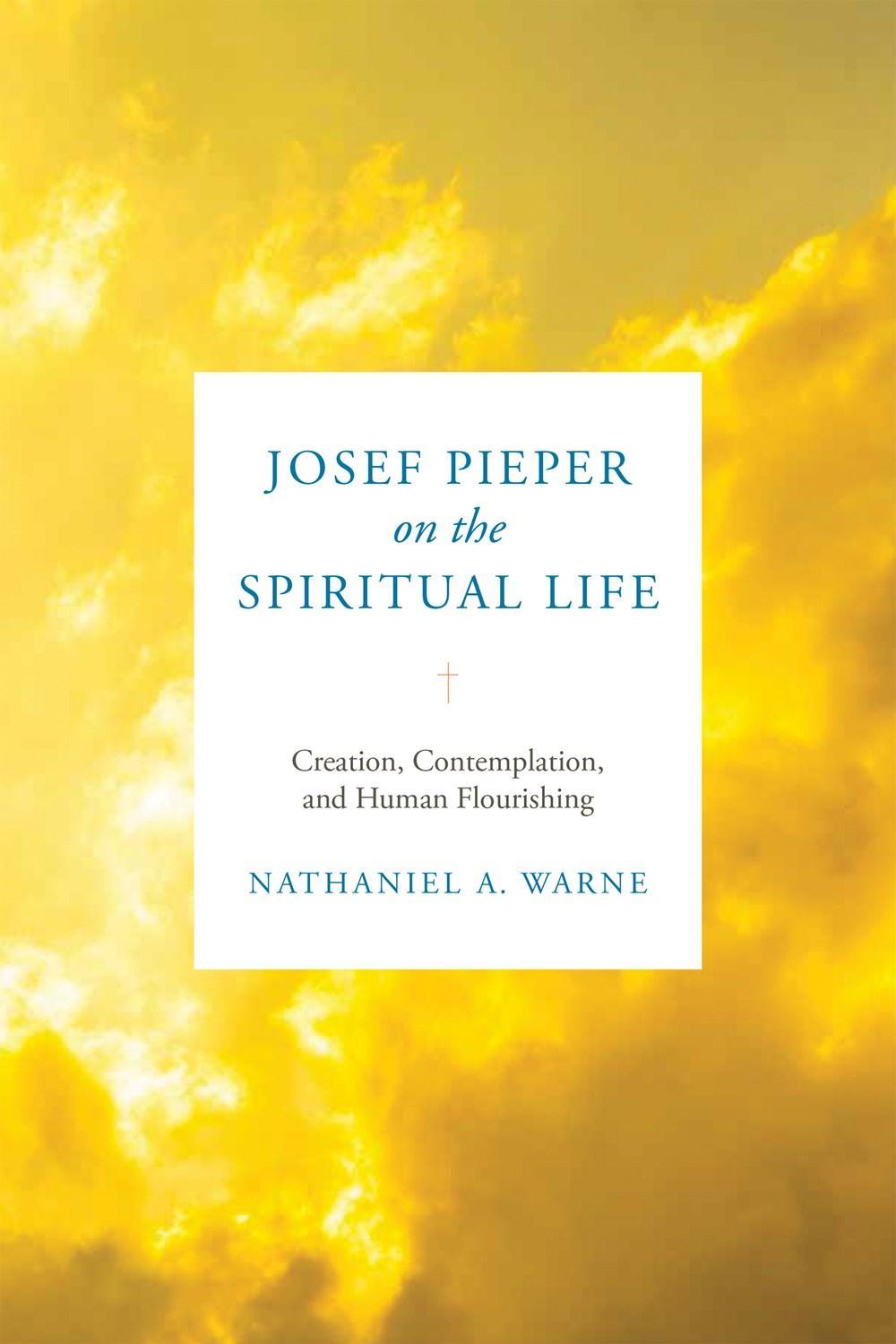
Summary
Warne’s original study provides an insightful analysis of the role of contemplation and creation in the thought of Josef Pieper, illustrating the importance of this practice to earthly happiness and human flourishing.
What is the relationship between creation, contemplation, human flourishing, and moral development?
Nathaniel Warne’s Josef Pieper on the Spiritual Life offers a sophisticated answer to this question through a systematic analysis of philosopher Josef Pieper’s (1904–1997) thought. Warne’s examination centers on the role of contemplation and creation in Pieper’s thinking, arguing that contemplation of the created order is a key feature of earthly happiness. By emphasizing the importance of contemplation, Pieper illustrates the deep interconnections between ethics, creation, and spirituality. For Warne, to posit a binary between the contemplative life and active life creates a false dichotomy. Following Pieper, Warne claims that theology and spirituality cannot be bracketed from ethics and social action—indeed, our lived experience in the world blurs the lines between these practices. Contemplation and action are closer together than are typically assumed, and they have important implications for both our spiritual development and our engagement with the world around us. Ultimately, Warne’s emphasis on creation and contemplation represents an attempt to resist a view of ethics and the spiritual life that is divorced from our environment. In response to this view, Warne argues that we need a renewed sense that creation and place are important for self-understanding. Contemplation of creation is, fundamentally, a form of communion with God—we thus need a more robust sense of how ethics and politics are rooted in God’s creative action. Taking Pieper as a guide, Warne’s study helps to deepen our thinking about these connections.
Contributor Bio
Nathaniel A. Warne is the priest-in-charge of St. Paul’s Episcopal Church, Mishawaka, Indiana, and teaches theological ethics at Bexley Seabury Seminary

John E. Coons, Nicole Stelle Garnett, Richard W. Garnett, Ernest Morrell
Summary
This work makes a richly humanitarian case for parental school choice, seeking to advance social justice and respect the dignity of parents—especially those on the margins.
For decades, arguments in favor of school choice have largely been advanced on the basis of utility or outcome rather than social justice and human dignity. The Case for Parental Choice offers a compelling and humanitarian alternative. This volume contains an edited collection of essays by John E. Coons, a visionary legal scholar and ardent supporter of what is perhaps best described as a social justice case for parental school choice. Few have written more prodigiously or prophetically about the need to give parents power over their children’s schooling. Coons has been an advocate of school choice for over sixty years, and indeed remains one of the most articulate proponents of a case for school choice that promotes both low-income parents and civic engagement, as opposed to mere efficiency or achievement. His is a distinctively Catholic voice that brings powerful normative arguments to debates that far too often get bogged down in disputes about cost savings and test scores. The essays collected herein treat a wide variety of topics, including the relationship between school choice and individual autonomy; the implications of American educational policy for social justice, equality, and community; the impact of public schooling on low-income families; and the religious implications of school choice.
Contributor Bio
John E. Coons is the Robert L. Bridges Professor of Law (Emeritus) at Berkeley Law, University of California, Berkeley.
Nicole Stelle Garnett is the John P. Murphy Foundation Professor of Law at the Law School, University of Notre Dame.
Richard W. Garnett is the Paul J. Schierl/Fort Howard Corporation Professor of Law, concurrent professor of political science, and the director of the Program on Church, State, and Society at the Law School, University of Notre Dame.
Ernest Morrell is the Coyle Professor in Literary Education, professor of English, professor of Africana studies, and director of the Notre Dame Center for Literary Education at the University of Notre Dame.

9780268200862
Pub Date: 8/15/21
$30.00 USD
Paperback
246 Pages Medical / Ethics
Series: Notre Dame Studies in Medical Ethics and Bioethics
9 in H | 6 in W
Farr Curlin, Christopher Tollefsen
Summary
What is medicine and what is it for? What does it mean to be a good doctor? Answers to these questions are essential both to the practice of medicine and to understanding the moral norms that shape that practice. The Way of Medicine articulates and defends an account of medicine and medical ethics meant to challenge the reigning provider of services model, in which clinicians eschew any claim to know what is good for a patient and instead offer an array of “health care services” for the sake of the patient’s subjective well-being. Against this trend, Farr Curlin and Christopher Tollefsen call for practitioners to recover what they call the Way of Medicine, which offers physicians both a path out of the provider of services model and also the moral resources necessary to resist the various political, institutional, and cultural forces that constantly push practitioners and patients into thinking of their relationship in terms of economic exchange.
Curlin and Tollefsen offer an accessible account of the ancient ethical tradition from which contemporary medicine and bioethics has departed. Their investigation, drawing on the scholarship of Leon Kass, Alasdair MacIntyre, and John Finnis, leads them to explore the nature of medicine as a practice, health as the end of medicine, the doctor-patient relationship, the rule of double effect in medical practice, and a number of clinical ethical issues from the beginning of life to its end. In the final chapter, the authors take up debates about conscience in medicine, arguing that rather than pretending to not know what is good for patients, physicians should contend conscientiously for the patient’s health and, in so doing, contend conscientiously for good medicine.
Contributor Bio
Farr Curlin is Josiah C. Trent Professor of Medical Humanities at Duke University. He holds appointments in the School of Medicine; the Trent Center for Bioethics, Humanities and History of Medicine; the Divinity School; and the Kenan Institute for Ethics.
Christopher Tollefsen is the College of Arts and Sciences Distinguished Professor of Philosophy at the University of South Carolina.
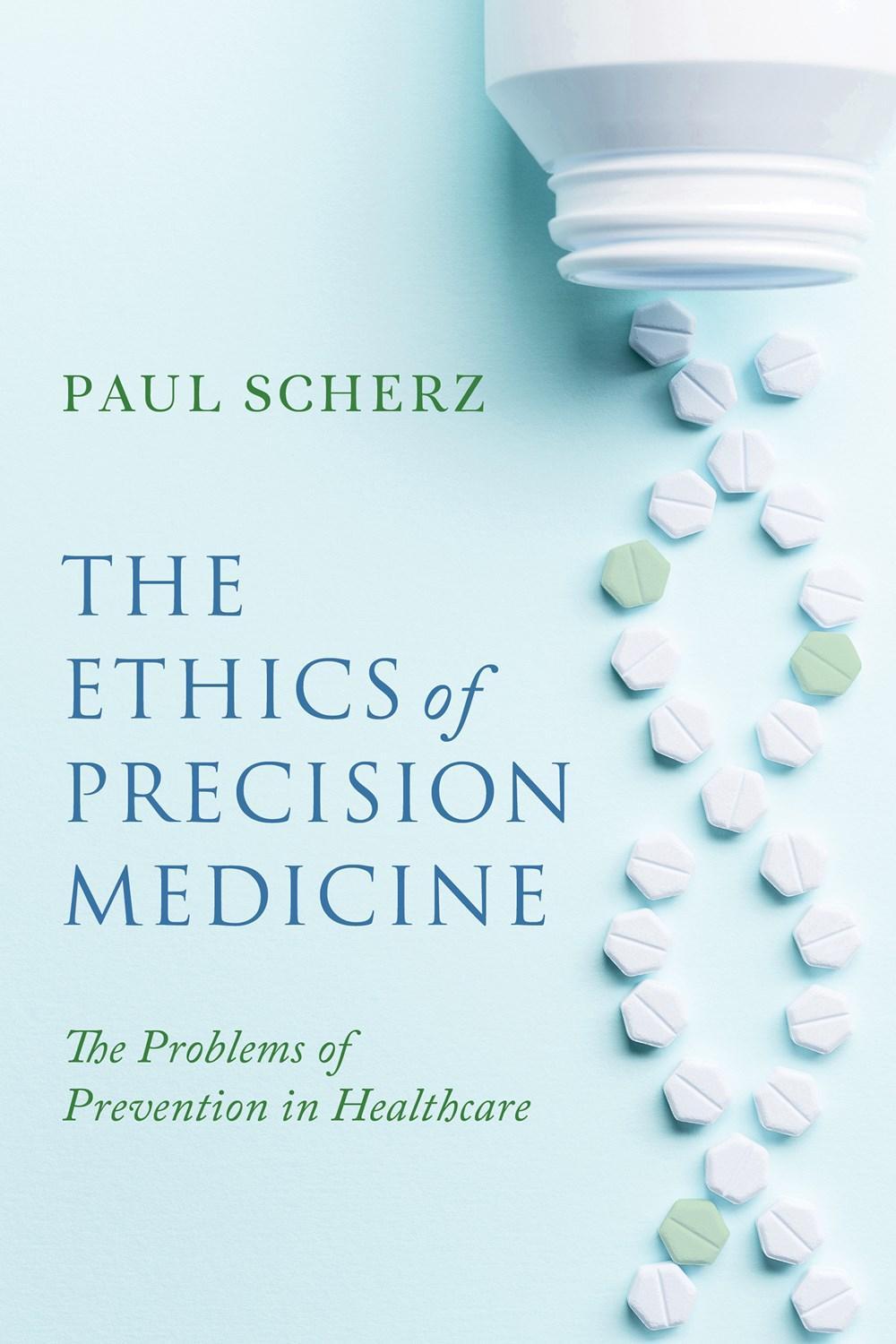
Paul Scherz
Summary
Paul Scherz explores the ethical challenges raised by precision medicine and its focus on medical risk as opposed to current disease.
Genetic technologies and artificial intelligence are rapidly changing the landscape of medical practice and patient care. In the emerging field of precision medicine, a patient’s risk factors—especially genetic risk factors—are incorporated into an all-encompassing plan to prevent future disease. But identifying at-risk individuals through technologies such as wearable devices and direct-to-consumer genetic sequencing can undermine the overall experience of health. The potential for overdiagnosis and overtreatment grows as patients are prescribed medications and receive prophylactic surgeries that carry inherent risks. Also, as the medical industry shifts its attention from individuals to trends in the general population, the one-to-one practitioner-patient relationship becomes strained.
Using the lens of virtue ethics and theological bioethics, The Ethics of Precision Medicine offers suggestions for better implementing precision medicine to treat those currently suffering from or at high risk of disease, while also recognizing that effectively preventing disease depends, ultimately, on addressing the social determinants of health. The book provides a new perspective on the problems of contemporary healthcare, proposing practical steps that individuals and institutions can take to ensure that the advanced technologies of precision medicine can be used to promote human flourishing.
Contributor Bio
Paul Scherz is the Our Lady of Guadalupe Professor of Theology at the University of Notre Dame. He is the author and editor of several books, including The Evening of Life: The Challenges of Aging and Dying Well (University of Notre Dame Press, 2020).
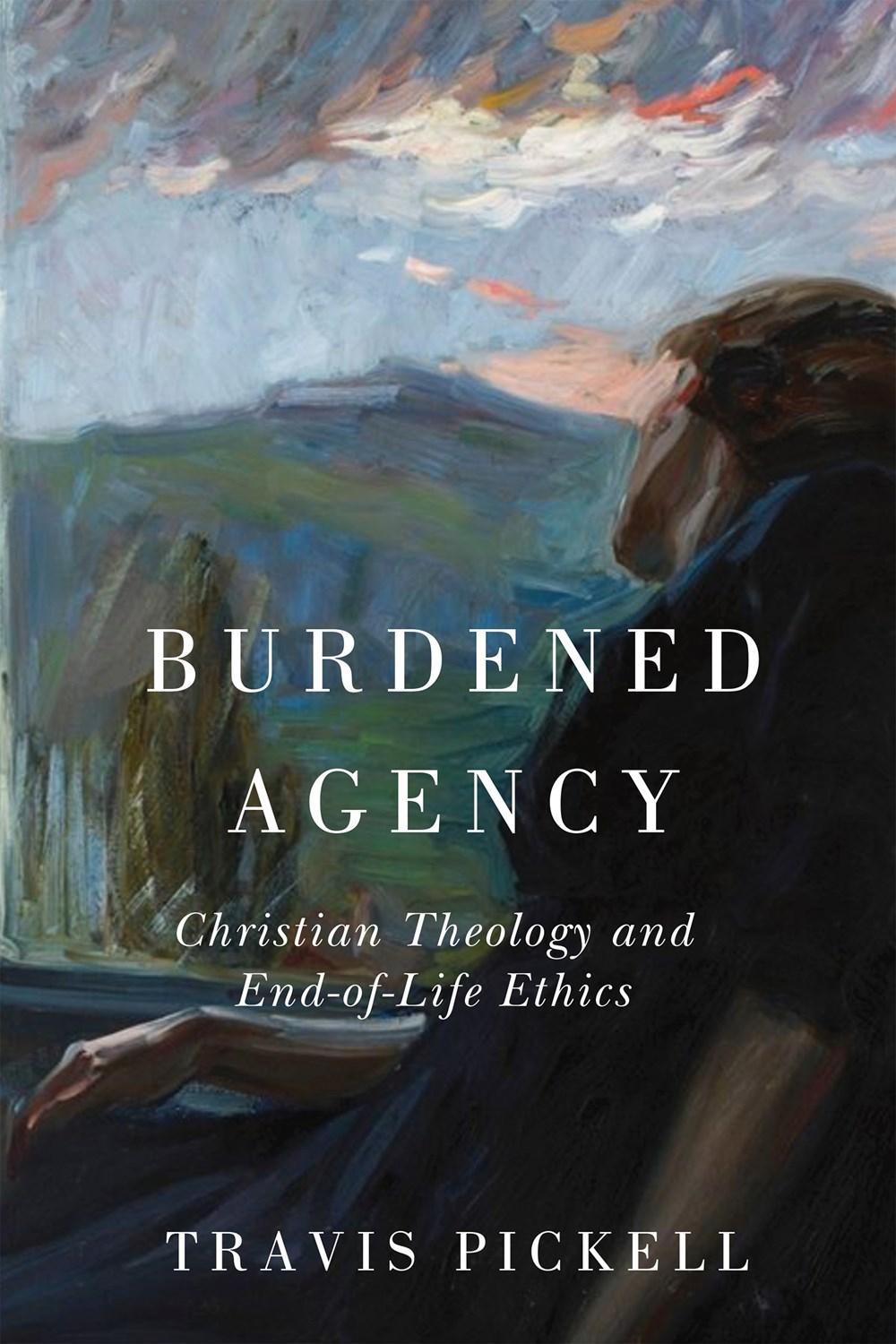
9780268208417 Pub
$50.00
Christian Theology and End-of-Life Ethics
Travis Pickell
Summary
Travis Pickell explores the paradoxes of choice in modern dying and the ways Christian theology can aid in navigating the relationship between moral agency and dignity at the end of life.
Burdened Agency addresses the problem of death and dying through Christian theology and ethics. In previous centuries, death was something that simply “happened” to us. To choose how or when one died was the exception, not the rule. However, due to advances in modern medicine, individuals are increasingly required to make concrete choices about the nature and timing of death. Modernity, with its emphasis on individualism, complicates this further because we are increasingly bereft of cultural and religious guidance regarding death. This gives rise to the phenomenon of “burdened agency”: the predicament of having to make such difficult choices with so little to help us.
This engaging book offers a historical and philosophical account of the origins of our situation of burdened agency, as well as a Christian solution to the problems that it raises. Looking to theologians such as Karl Rahner, Karl Barth, and Stanley Hauerwas, Pickell devises a radically countercultural approach to death and dying rooted in Christian theological commitments and enacted in the practices of baptism, Eucharist, and prayer.
Contributor Bio
Travis Pickell is an assistant professor of theology and ethics at George Fox University, where he also directs the Character Virtue Initiative and the Cornerstone Core curriculum.
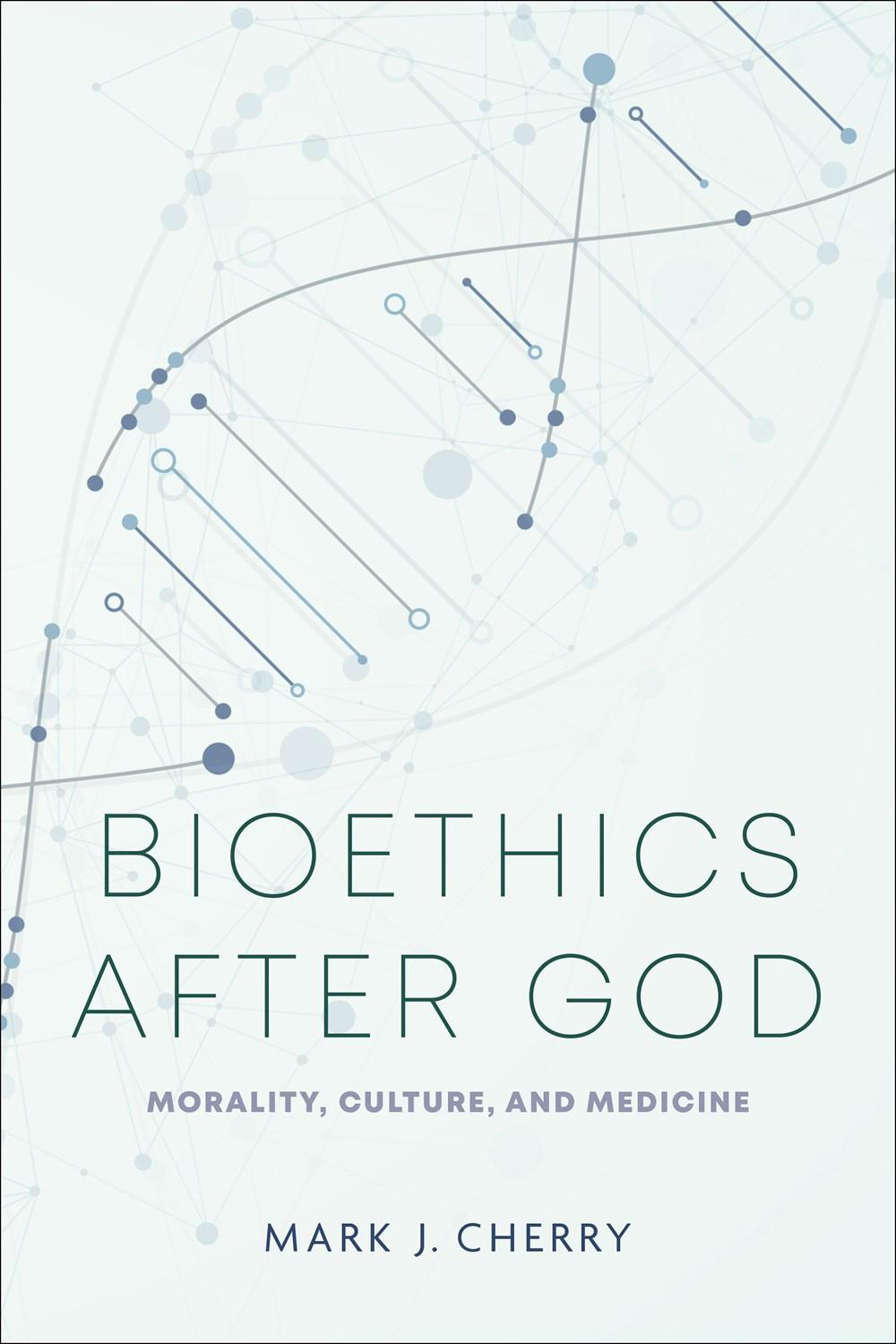
Mark J. Cherry
Summary
Bioethics after God explores the relationship between morality and medicine in a society that has denied the existence of God.
Medicine and bioethics are going through profound changes in the Western world. Practices that prior generations would have recognized as morally impermissible, such as abortion, eugenics, and euthanasia, are becoming central components of modern health care. Bioethics after God argues that in the process of rejecting its Christian roots, the Western world has upended traditional understandings of truth that are central to both scientific and moral judgment. The effect is felt throughout medicine as health care professionals increasingly work without the context and guidance provided by traditional Christian ethics.
Cherry uses the conceptual framework of “weak bioethics”—bioethics solely informed by the stark limits of secular morality—to delve into shifting concepts of health and disease, the active embrace of ethically fraught practices, and technological developments such as brain transplantation and humanoid robots designed for sexual activity. The implications of a bioethics after God are wide-ranging and profound, and Cherry challenges us to consider the repercussions of pushing forward in medicine without the support of a solid ethical foundation.
Contributor Bio
Mark J. Cherry is the Dr. Patricia A. Hayes Professor in Applied Ethics and professor of philosophy at St. Edward’s University, Austin, Texas. He is author of Kidney for Sale by Owner: Human Organs, Transplantation, and the Market and Sex, Family, and the Culture Wars
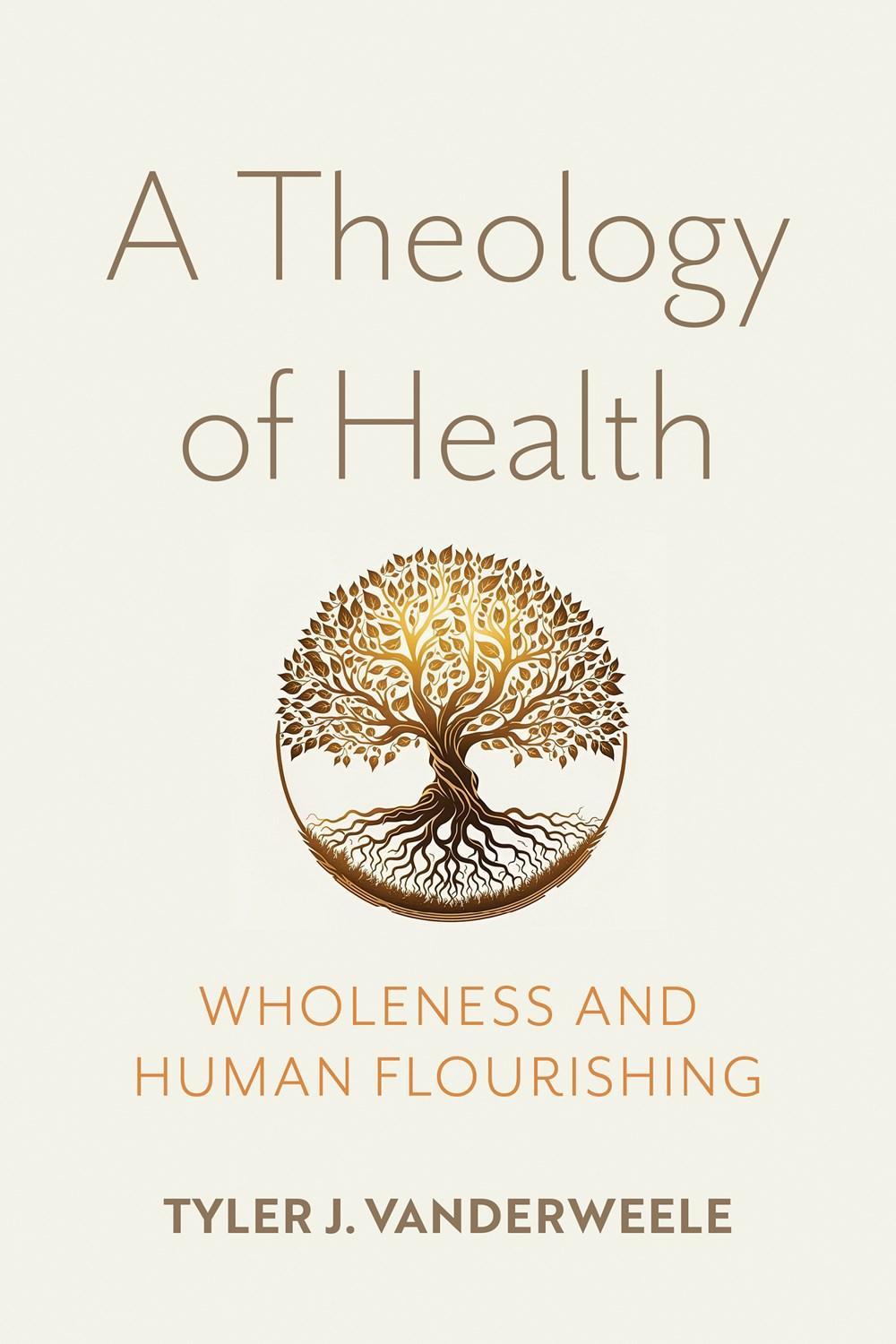
9780268208332
Pub Date: 9/15/24
$42.00
392
9
Tyler J. VanderWeele
Summary
While the health of the body can be defined by its functioning parts and systems, the health of the person is more complex. To flourish, we need to understand health in the context of God’s intent.
A Theology of Health presents a Christian understanding of the very concept of health, both the health of the body and the health of the person. Preeminent scholar Tyler J. VanderWeele argues that health can be understood as wholeness as intended by God and that sin—whether individual wrongdoing, societal injustice, or the fallenness of creation—causes ill health. VanderWeele explains that restoration and fulfillment of health is salvation, pointed toward in the life of Jesus Christ, to be lived out through the work of the Church, and for which we await final completion. VanderWeele also demonstrates the broader relevance and implications of his insights to all who seek to understand health, well-being, and the ultimate ends of human life.
A Theology of Health is an essential theological exploration that seeks to promote health, healing, and flourishing of the whole person.
Contributor Bio
Tyler J. VanderWeele is the John L. Loeb and Frances Lehman Loeb Professor of Epidemiology at the Harvard T. H.Chan School of Public Health, and director of the Human Flourishing Program and co-director of the Initiative on Health, Spirituality, and Religion at Harvard University. He is author and co-author of several books, including Measuring Well-Being and the Handbook of Religion and Health
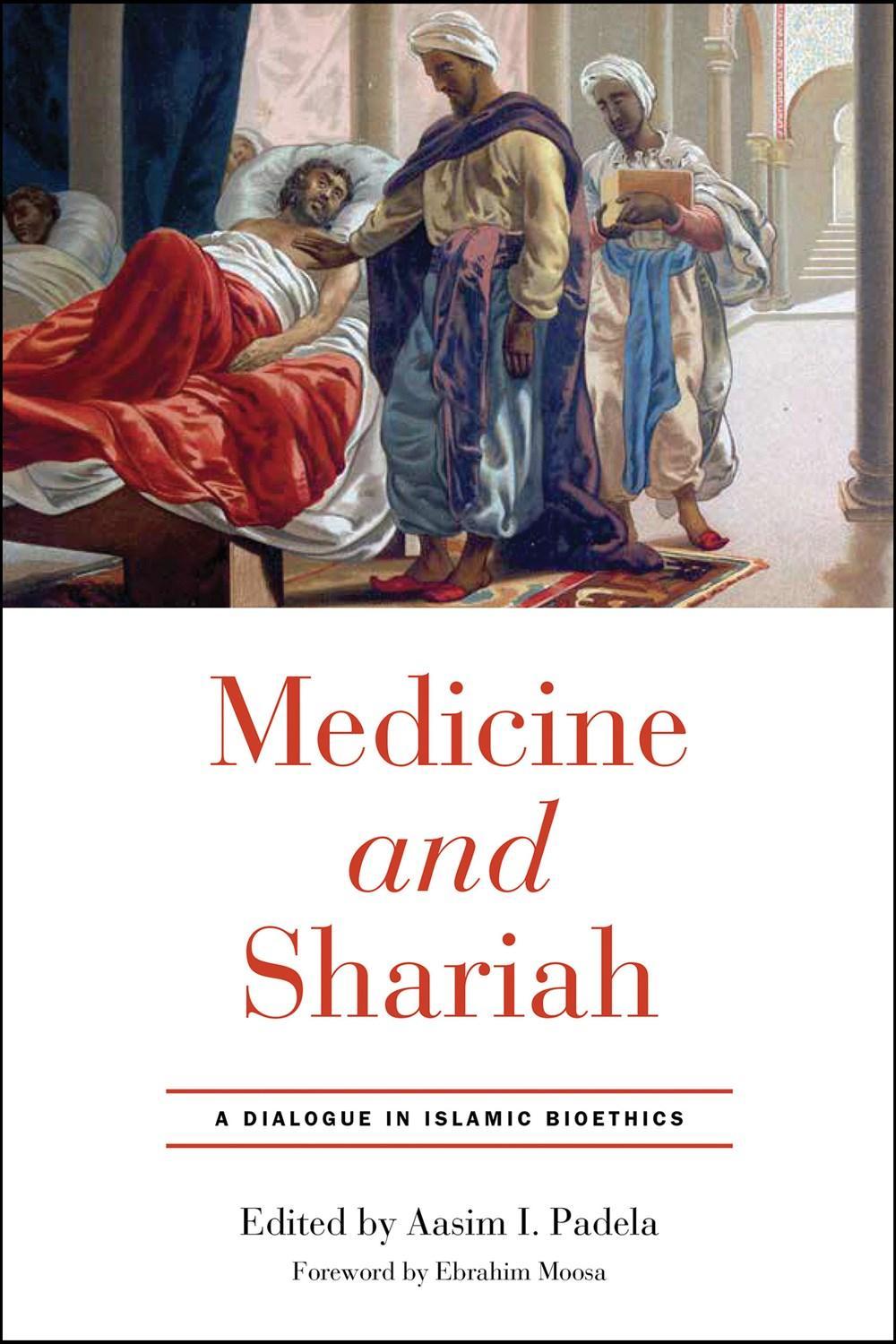
Aasim I. Padela
Medicine and Shariah brings together experts from various fields, including clinicians, Islamic studies experts, and Muslim theologians, to analyze the interaction of the doctors and jurists who are forging the field of Islamic bioethics.
Although much ink has been spilled in generating Islamic responses to bioethical questions and in analyzing fatwas, Islamic bioethics still remains an emerging field. How are Islamic bioethical norms to be generated? Are Islamic bioethical writings to be considered as part of the broader academic discourse in bioethics? What even is the scope of Islamic bioethics? Taking up these and related questions, the essays in Medicine and Shariah provide the groundwork for a more robust field. The volume begins by furnishing concepts and terms needed to map out the discourse. It concludes by offering a multidisciplinary model for ethical deliberation that accounts for the various disciplines needed to derive Islamic moral norms and to understand biomedical contexts. In between these bookends, contributors apply various analytic, empirical, and normative lenses to examine the interaction between biomedical knowledge (represented by physicians) and Islamic law (represented by jurists) in Islamic bioethical deliberation. By providing a multidisciplinary model for generating Islamic bioethics rulings, Medicine and Shariah provides the critical foundations for an Islamic bioethics that better attends to specific biomedical contexts and also accurately reflects the moral vision of Islam.
Contributors: Ebrahim Moosa, Aasim I. Padela, Vardit Rispler-Chaim, Abul Fadl Mohsin Ebrahim, Muhammed Volkan Yildiran Stodolsky, Mohammed Amin Kholwadia, Hooman Keshavarzi, and Bilal Ali.
Contributor Bio
Aasim I. Padela is professor of emergency medicine, bioethics, and humanities at the Medical College of Wisconsin.
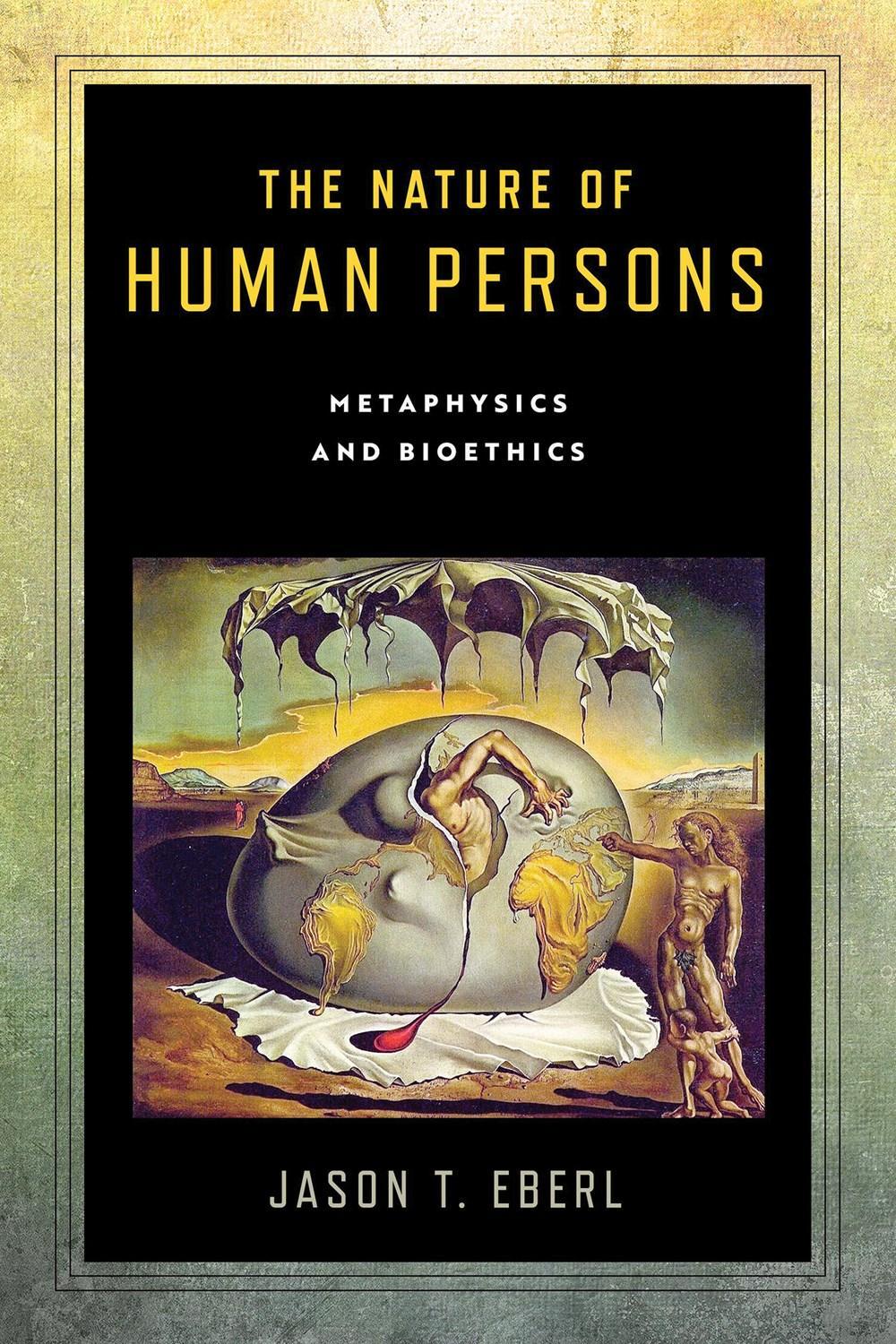
9780268107741
Pub Date: 7/15/24
$45.00 USD
/ Ethics & Moral
Notre Dame Studies
9 in H | 6 in W
Jason
T. Eberl
Summary
For a human being to exist, does it require an immaterial mind, a physical body, a functioning brain, a soul?
Is there a shared nature common to all human beings? What essential qualities might define this nature? These questions are among the most widely discussed topics in the history of philosophy and remain subjects of perennial interest and controversy. The Nature of Human Persons offers a metaphysical investigation of the composition of the human essence.
Jason Eberl also considers the criterion of identity for a developing human being—that is, what is required for a human being to continue existing as a person despite undergoing physical and psychological changes over time? Eberl places Thomas Aquinas’s account of human nature into direct comparison with several prominent contemporary theories: substance dualism, emergentism, animalism, constitutionalism, four-dimensionalism, and embodied mind theory. These theories inform conclusions regarding when human beings first come into existence (at conception, during gestation, or after birth), how we ought to define death for human beings, and whether (and if so how) human beings may survive death. Ultimately, The Nature of Human Persons argues that the Thomistic account of human nature addresses the matters of human nature and survival more holistically than other theories and offers a cohesive portrait of one’s continued existence from conception through life to death and beyond.
Contributor Bio
Jason T. Eberl is the Hubert Mäder Chair in health care ethics, professor of health care ethics and philosophy, and director of the Albert Gnaegi Center for Health Care Ethics at Saint Louis University. He is the author of a number of books, including Contemporary Controversies in Catholic Bioethics

9780268208219
$55.00
Daniel Mark
Summary
Challenging the prevailing understanding of the authority of law, Daniel Mark offers a theory of moral obligation that is rooted both in command and in the law’s orientation to the common good.
When and why do we have an obligation to obey the law? Prevailing theories in the philosophy of law, starting with the work of H. L. A. Hart and Joseph Raz, fail to provide definitive answers regarding the nature of legal obligation. In this highly original and effective new work, Daniel Mark argues that there is a prima facie moral obligation to obey the law simply because it is the law. In Mark’s view, the best concept of law—one that allows for the possibility of justified authority and obligation—defines law as a set of commands oriented to the common good. Legal obligation, he proposes, shares defining features with moral obligation and with religious obligation while aligning wholly with neither.
This philosophically coherent view of legal obligation offers a viable framework for analyzing important and seemingly paradoxical puzzles about the law, such as why civil disobedience is punished as lawbreaking or why war-crimes trials for legal but immoral acts present a moral quandary.
By reconciling the concept of law as command with the role of law in promoting the common good, The Nature of Law provides an original and important scholarly contribution to the fields of legal philosophy and political thought.
Contributor Bio
Daniel Mark is an associate professor of political science at Villanova University. Mark has published numerous journal articles and book chapters in the fields of political science and political theology.
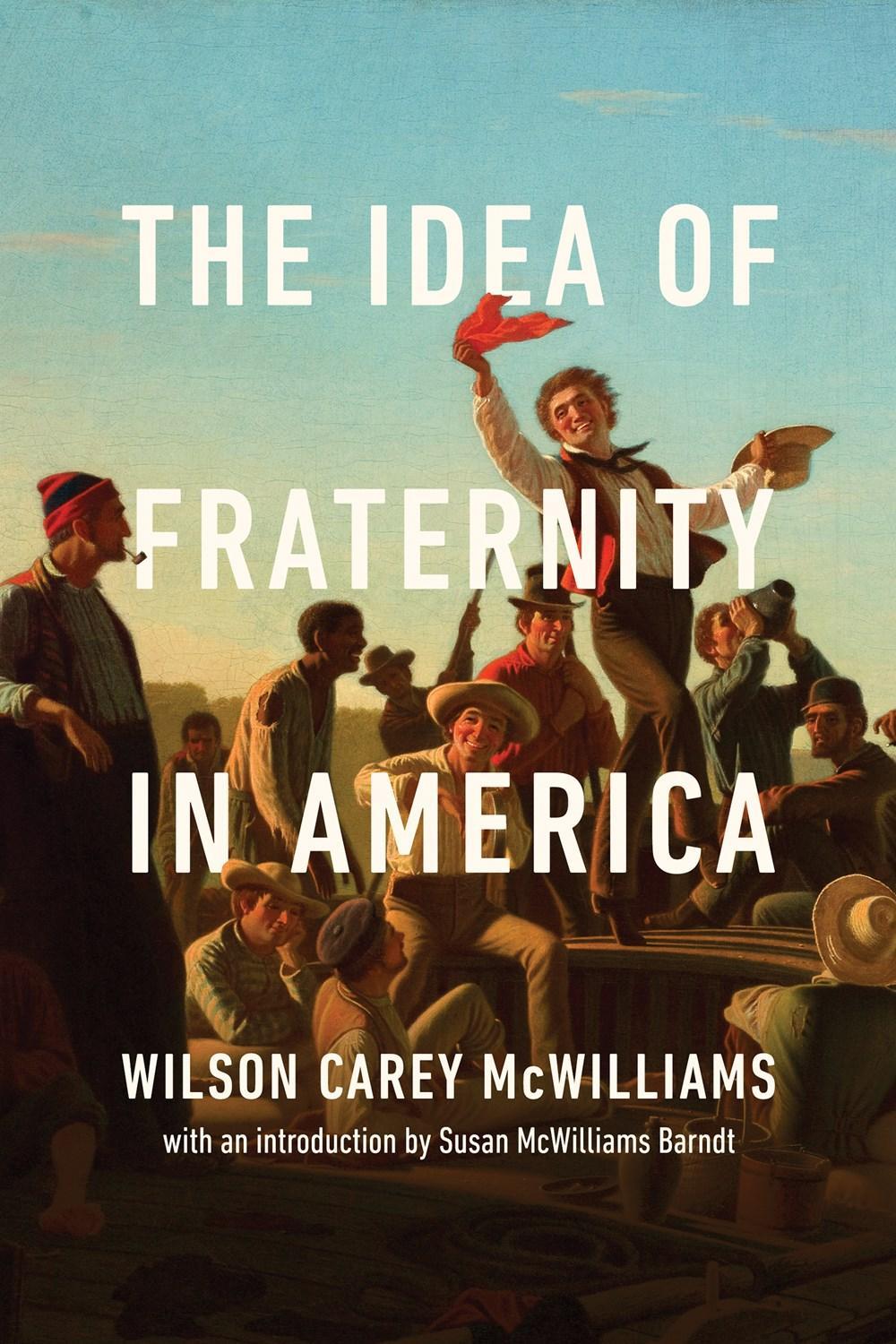
Wilson Carey McWilliams, Susan McWilliams Barndt
Summary
“A complex, intellectually jarring, and valuable book, one which reveals how early America became her true self as we now know her.” —Kirkus Reviews
The United States is currently experiencing a crisis of citizenship and democracy. For many of us, there is a sense of forlornness caused by losing sight of human connectedness and the bonds of community. Originally published in 1973, and long out of print, The Idea of Fraternity in America is a resonant call to reclaim and restore the communal bonds of democracy by one of the most important political theorists of the twentieth century, Wilson Carey McWilliams.
This sprawling and majestic book offers a comprehensive and original interpretation of the whole range of American historical and political thought, from seventeenth-century White Puritanism to twentieth-century Black American political thought. In one sense, it is a long and sustained reflection on the American political tradition, with side glances at other cultures and other traditions; in another sense, it is an impressive beginning to an original and comprehensive theory of politics, rooted in a new reading of a vast array of relevant sources. Speaking with a prescience unmatched by his contemporaries, McWilliams argues that in order to address the malaise of our modern democracy we must return to an ideal of our past: fraternity, a relation of affection founded on shared values and goals. This 50th anniversary edition, which offers a critique of the liberal tradition and a new social philosophy for the future, contains a new introduction from McWilliams’s daughter, Susan McWilliams Barndt. She writes, “At a time when many Americans are wondering how we got to where we are today . . . this book demonstrates that there is in fact a lot of precedent for what feels so unprecedented in contemporary American politics.”
Contributor Bio
Wilson Carey McWilliams (1933–2005) was a professor in the department of political science at Rutgers, the State University of New Jersey, at New Brunswick.

9780268107222 Pub Date: 2/15/21
$25.00
176 Pages
8.5 in H | 5.5 in W
Pierre Manent, Ralph C. Hancock
Summary
This first English translation of Pierre Manent’s profound and strikingly original book La loi naturelle et les droits de l’homme is a reflection on the central question of the Western political tradition. In six chapters, developed from the prestigious Étienne Gilson lectures at the Institut Catholique de Paris, and in a related appendix, Manent contemplates the steady displacement of the natural law by the modern conception of human rights. He aims to restore the grammar of moral and political action, and thus the possibility of an authentically political order that is fully compatible with liberty. Manent boldly confronts the prejudices and dogmas of those who have repudiated the classical and Christian notion of “liberty under law” and in the process shows how groundless many contemporary appeals to human rights turn out to be. Manent denies that we can generate obligations from a condition of what Locke, Hobbes, and Rousseau call the “state of nature,” where human beings are absolutely free, with no obligations to others. In his view, our ever-more-imperial affirmation of human rights needs to be reintegrated into what he calls an “archic” understanding of human and political existence, where law and obligation are inherent in liberty and meaningful human action. Otherwise we are bound to act thoughtlessly and in an increasingly arbitrary or willful manner. Natural Law and Human Rights will engage students and scholars of politics, philosophy, and religion, and will captivate sophisticated readers who are interested in the question of how we might reconfigure our knowledge of, and talk with one another about, politics.
Contributor Bio
Pierre Manent is professor emeritus of political philosophy at the École des Hautes Études en Sciences Sociales. He is the author of numerous books, including Montaigne: Life without Law (University of Notre Dame Press, 2020).
Ralph C. Hancock is professor of political science at Brigham Young University

Pierre Manent, Paul Seaton
Summary
In Montaigne: Life without Law, originally published in French in 2014 and now translated for the first time into English by Paul Seaton, Pierre Manent provides a careful reading of Montaigne’s three-volume work Essays. Although Montaigne’s writings resist easy analysis, Manent finds in them a subtle unity, and demonstrates the philosophical depth of Montaigne’s reflections and the distinctive, even radical, character of his central ideas. To show Montaigne’s unique contribution to modern philosophy, Manent compares his work to other modern thinkers, including Machiavelli, Hobbes, Pascal, and Rousseau. What does human life look like without the imposing presence of the state? asks Manent. In raising this question about Montaigne’s Essays, Manent poses a question of great relevance to our contemporary situation. He argues that Montaigne’s philosophical reflections focused on what he famously called la condition humaine, the human condition. Manent tracks Montaigne’s development of this fundamental concept, focusing especially on his reworking of pagan and Christian understandings of virtue and pleasure, disputation and death. Bringing new form and content together, a new form of thinking and living is presented by Montaigne’s Essays, a new model of a thoughtful life from one of the unsung founders of modernity.
Throughout, Manent suggests alternatives and criticisms, some by way of contrasts with other thinkers, some in his own name. This is philosophical engagement at a very high level. In showing the unity of Montaigne’s work, Manent’s study will appeal especially to students and scholars of political theory, the history of modern philosophy, modern literature, and the origins of modernity.
Contributor
Pierre Manent is professor emeritus of political philosophy at the École des Hautes Études en Sciences Sociales. He is the author of numerous books, including Natural Law and Human Rights: Toward a Recovery of Practical Reason (University of Notre Dame Press, 2020).
Paul Seaton is the Richard and Barbara Fisher Professor of Philosophy at St. Mary’s Seminary & University
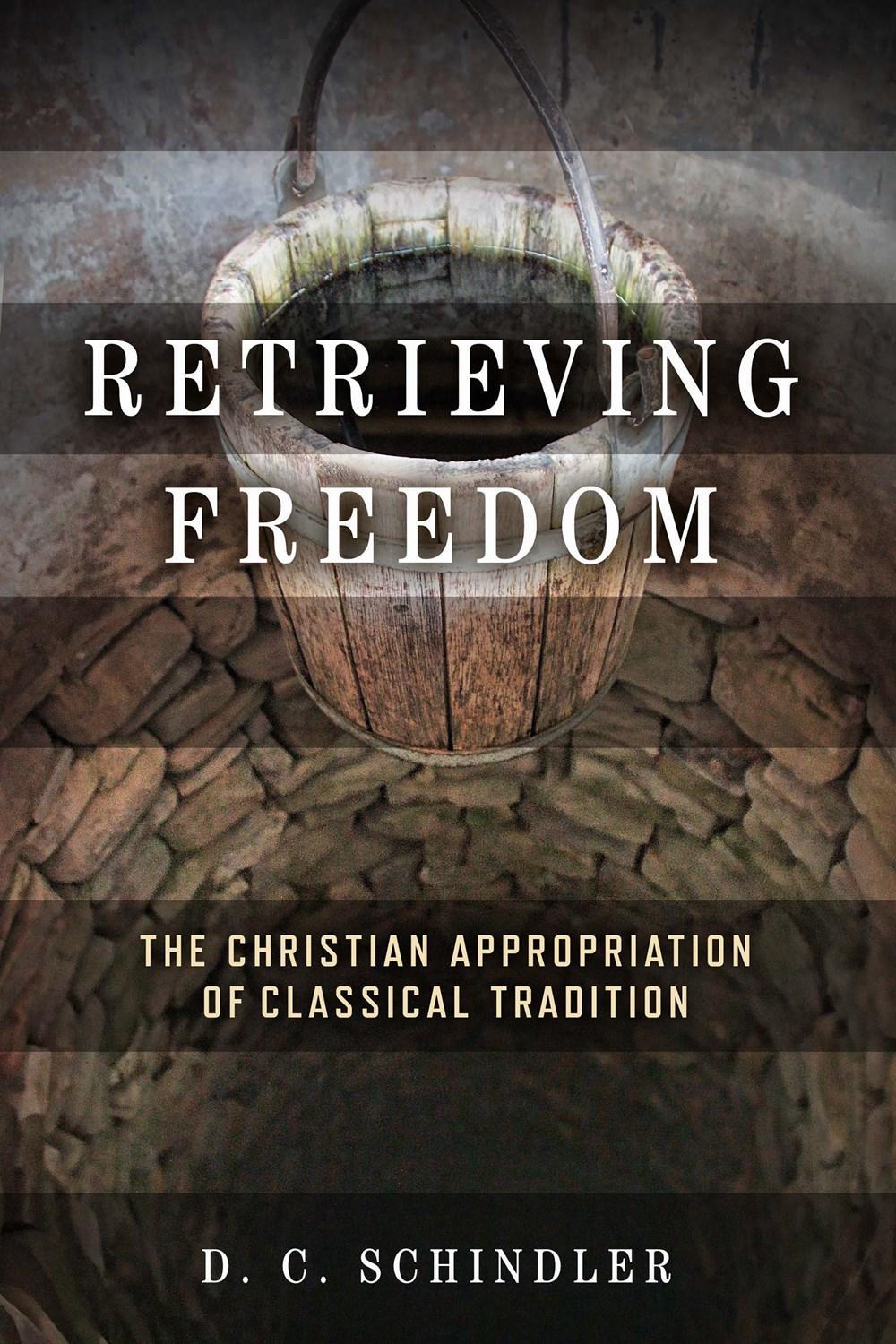
9780268203719
$45.00
550 Pages
/
9 in H | 6 in W
D.C. Schindler
Summary
Retrieving Freedom is a provocative, big-picture book, taking a long view of the “rise and fall” of the classical understanding of freedom.
In response to the evident shortcomings of the notion of freedom that dominates contemporary discourse, Retrieving Freedom seeks to return to the sources of the Western tradition to recover a more adequate understanding. This book begins by setting forth the ancient Greek conception—summarized from the conclusion of D. C. Schindler’s previous tour de force of political and moral reasoning, Freedom from Reality—and the ancient Hebrew conception, arguing that at the heart of the Christian vision of humanity is a novel synthesis of the apparently opposed views of the Greeks and Jews. This synthesis is then taken as a measure that guides an in-depth exploration of landmark figures framing the history of the Christian appropriation of the classical tradition. Schindler conducts his investigation through five different historical periods, focusing in each case on a polarity, a pair of figures who represent the spectrum of views from that time: Plotinus and Augustine from late antiquity, Dionysius the Areopagite and Maximus the Confessor from the patristic period, Anselm and Bernard from the early middle ages, Bonaventure and Aquinas from the high middle ages, and, finally, Godfrey of Fontaines and John Duns Scotus from the late middle ages. In the end, we rediscover dimensions of freedom that have gone missing in contemporary discourse, and thereby identify tasks that remain to be accomplished. Schindler’s masterful study will interest philosophers, political theorists, and students and scholars of intellectual history, especially those who seek an alternative to contemporary philosophical understandings of freedom.
Contributor Bio
D.C. Schindler is professor of metaphysics and anthropology at the John Paul II Institute, Washington, DC. He is the author of more than a dozen books, including Freedom from Reality: The Diabolical Character of Modern Liberty.
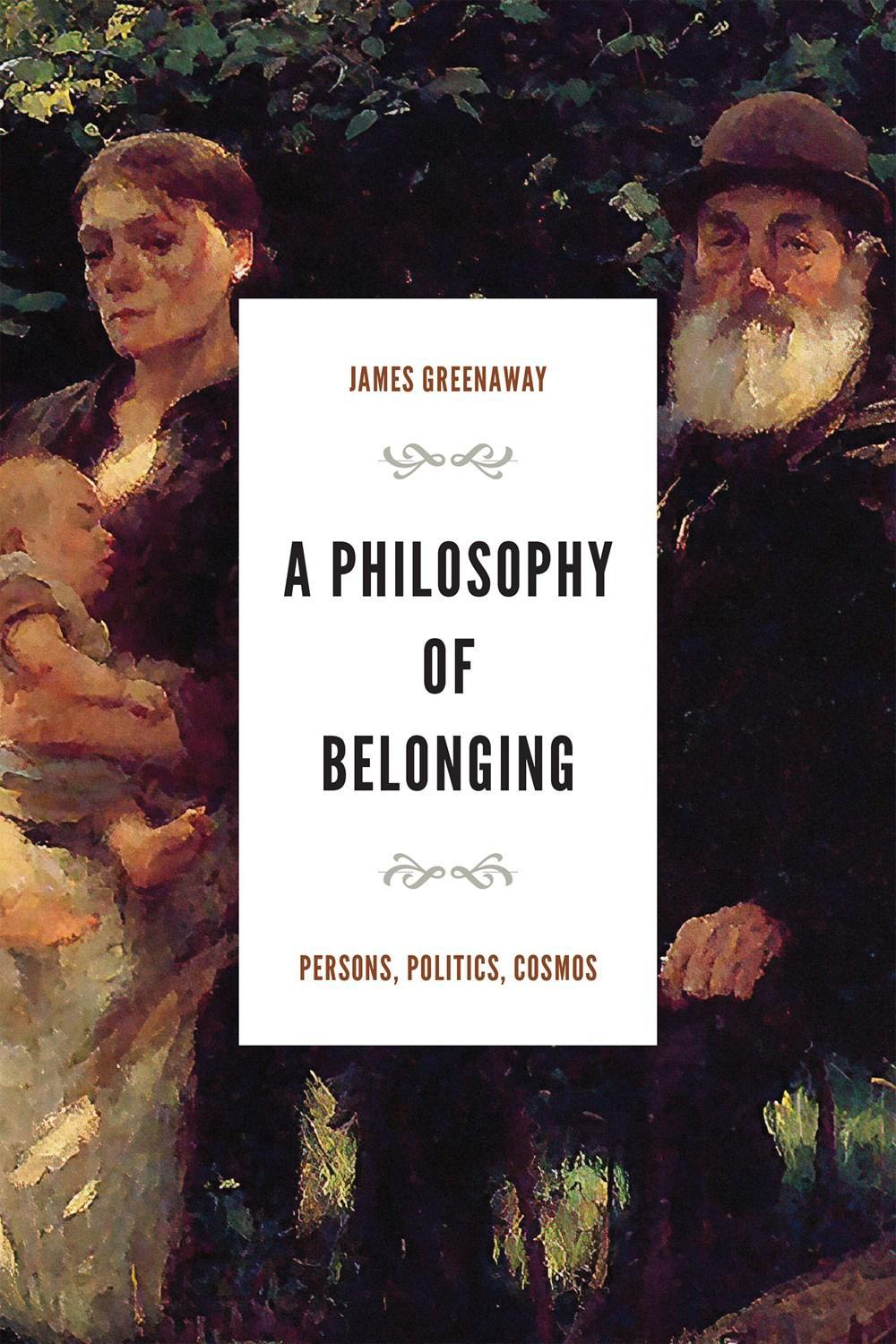
James Greenaway
Summary
James Greenaway offers a philosophical guide to understanding, affirming, and valuing the significance of belonging across personal, political, and historical dimensions of existence.
A sense of belonging is one of the most meaningful experiences of anyone’s life. Inversely, the discovery that one does not belong can be one of the most upsetting experiences. In A Philosophy of Belonging, Greenaway treats the notion of belonging as an intrinsically philosophical one. After all, belonging raises intense questions of personal self-understanding, identity, mortality, and longing; it confronts interpersonal, sociopolitical, and historical problems; and it probes our relationship with both the knowable world and transcendent mystery. Experiences of alienation, exclusion, and despair become conspicuous only because we are already moved by a primordial desire to belong.
Greenaway presents a hermeneutical framework that brings the intelligibility of belonging into focus and discusses the works of various representative thinkers in light of this hermeneutic. The study is divided into two main parts, “Presence” and “Communion.” In the first, Greenaway considers the abiding presence of the cosmos as the context of personhood and the world, followed by the presence of persons to themselves and others by way of consciousness and embodiment, culminating in a discussion of the unrestricted horizon of meaning that love makes present in persons. In the second part, belonging in community is explored as a crucial type of communion that is both politically and historically structured. Moreover, communion has direction and a quality of sacredness that offers itself for consideration. Greenaway concludes with a discussion of the consequences of refusing presence and communion, and what is involved in the repudiation of belonging.
Contributor Bio
James Greenaway is the San José-Lonergan Chair in Catholic Philosophy at St. Mary’s University. He is the author of The Differentiation of Authority: The Medieval Turn Toward Existence
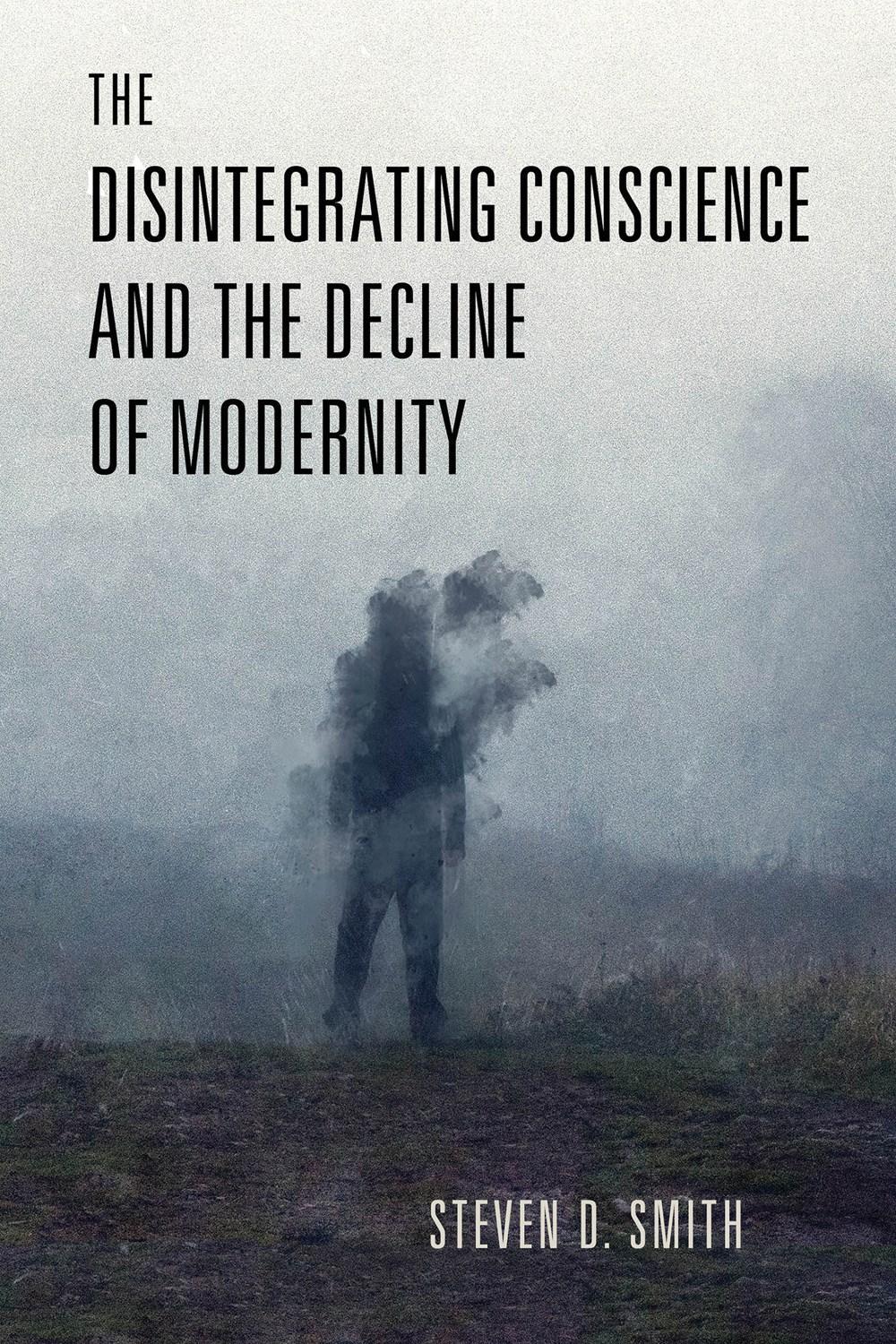
Steven D. Smith
Summary
This book considers how the modern concept of “conscience” turns the historic commitment on its head, in a way that underlies the decadence of modern society.
Steven D. Smith’s books are always anticipated with great interest by scholars, jurists, and citizens who see his work on foundational questions surrounding law and religion as shaping the debate in profound ways. Now, in The Disintegrating Conscience and the Decline of Modernity, Smith takes as his starting point Jacques Barzun’s provocative assertion that “the modern era” is coming to an end. Smith considers the question of decline by focusing on a single theme—conscience—that has been central to much of what has happened in Western politics, law, and religion over the past half-millennium. Rather than attempting to follow that theme step-by-step through five hundred years, the book adopts an episodic and dramatic approach by focusing on three main figures and particularly portentous episodes: first, Thomas More’s execution for his conscientious refusal to take an oath mandated by Henry VIII; second, James Madison’s contribution to Virginia law in removing the proposed requirement of religious toleration in favor of freedom of conscience; and, third, William Brennan’s pledge to separate his religious faith from his performance as a Supreme Court justice. These three episodes, Smith suggests, reflect in microcosm decisive turning points at which Western civilization changed from what it had been in premodern times to what it is today. A commitment to conscience, Smith argues, has been a central and in some ways defining feature of modern Western civilization, and yet in a crucial sense conscience in the time of Brennan and today has come to mean almost the opposite of what it meant to Thomas More. By scrutinizing these men and episodes, the book seeks to illuminate subtle but transformative changes in the commitment to conscience—changes that helped to bring Thomas More’s world to an end and that may also be contributing to the disintegration of (per Barzun) “the modern era.”
Contributor Bio
Steven D Smith, winner of the 2022 Religious Liberty Initiative Scholarship Award, is the Warren Distinguished Professor of Law, co-executive director of the Institute for Law and Religion, and the co-executive director of the Institute for Law and Philosophy at the University of San Diego.

David Walsh
Summary
In The Priority of the Person, world-class philosopher David Walsh advances the argument set forth in his highly original philosophic meditation Politics of the Person as the Politics of Being (2015), that “person” is the central category of modern political thought and philosophy. The present volume is divided into three main parts. It begins with the political discovery of the inexhaustibility of persons, explores the philosophic differentiation of the idea of the “person,” and finally traces the historical emergence of the concept through art, science, and faith. Walsh argues that, although the roots of the idea of “person” are found in the Greek concept of the mind and in the Christian conception of the soul, this notion is ultimately a distinctly modern achievement, because it is only the modern turn toward interiority that illuminated the unique nature of persons as each being a world unto him- or herself. As Walsh shows, it is precisely this feature of persons that makes it possible for us to know and communicate with others, for we can only give and receive one another as persons. In this way alone can we become friends and, in friendship, build community.
By showing how the person is modernity’s central preoccupation, David Walsh’s The Priority of the Person makes an important contribution to current discussions in both political theory and philosophy. It will also appeal to students and scholars of theology and literature, and any groups interested in the person and personalism.
Contributor Bio
David Walsh is professor of politics at the Catholic University of America. He is the author and editor of a number of books, including Politics of the Person as the Politics of Being (University of Notre Dame Press, 2015).
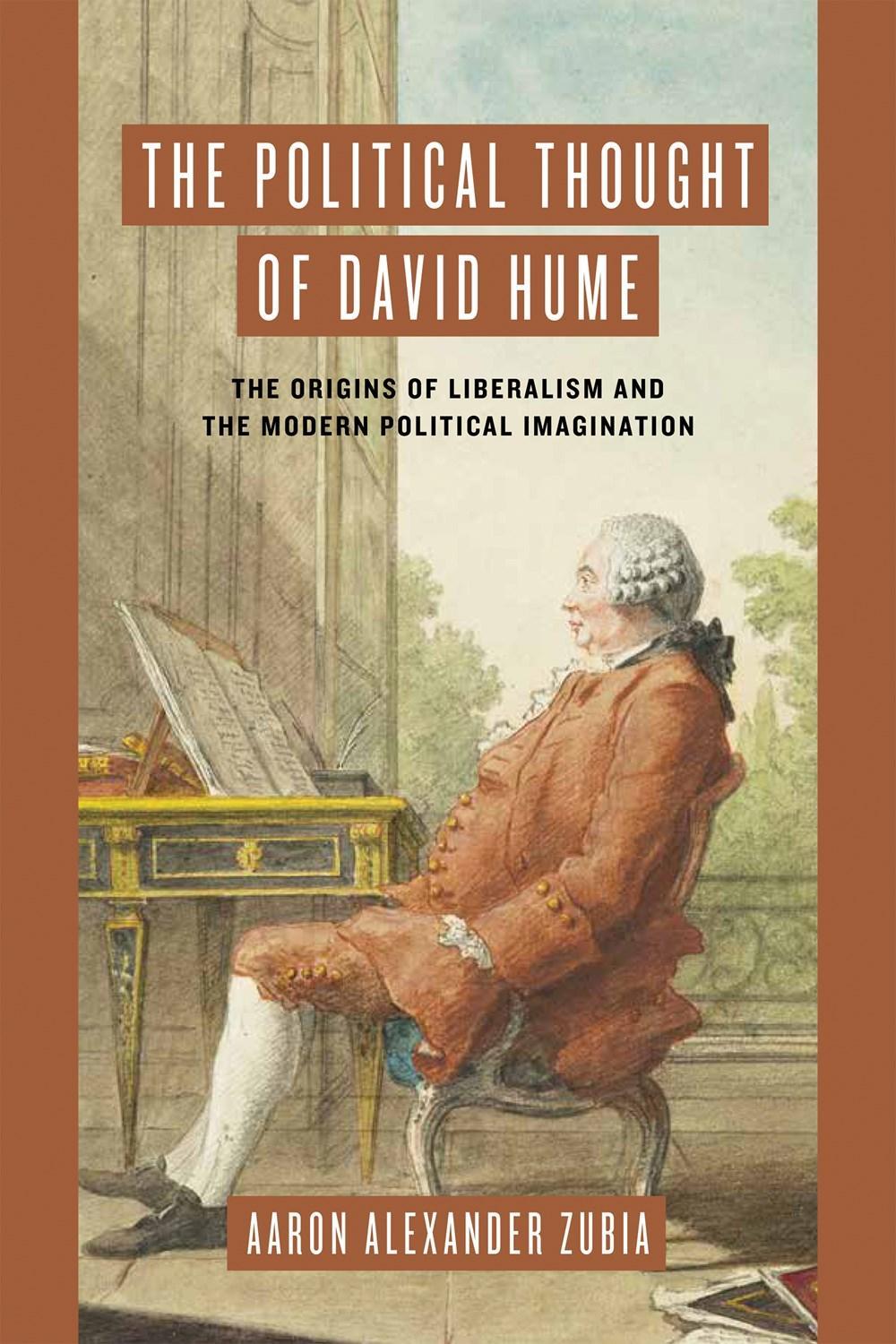
9780268207809
Pub Date: 2/15/24
$70.00
386
The Origins of Liberalism and the Modern Political Imagination
Aaron Alexander Zubia
Summary
Aaron Alexander Zubia argues that the Epicurean roots of David Hume’s philosophy gave rise to liberalism’s unrelenting grip on the modern political imagination.
Eighteenth-century Scottish philosopher David Hume has had an outsized impact on the political thinkers who came after him, from the nineteenth-century British Utilitarians to modern American social contract theorists. In this thorough and thoughtful new work, Aaron Alexander Zubia examines the forces that shaped Hume’s thinking within the broad context of intellectual history, with particular focus on the ancient Greek philosopher Epicurus and the skeptical tradition.
Zubia argues that through Hume’s influence, Epicureanism—which elevates utility over moral truth—became the foundation of liberal political philosophy, which continues to dominate and limit political discourse today.
Contributor Bio
Aaron Alexander Zubia is assistant professor of humanities at the University of Florida. His work has appeared in the Wall Street Journal, National Review, Interpretation: A Journal of Political Philosophy, and Law & Liberty.
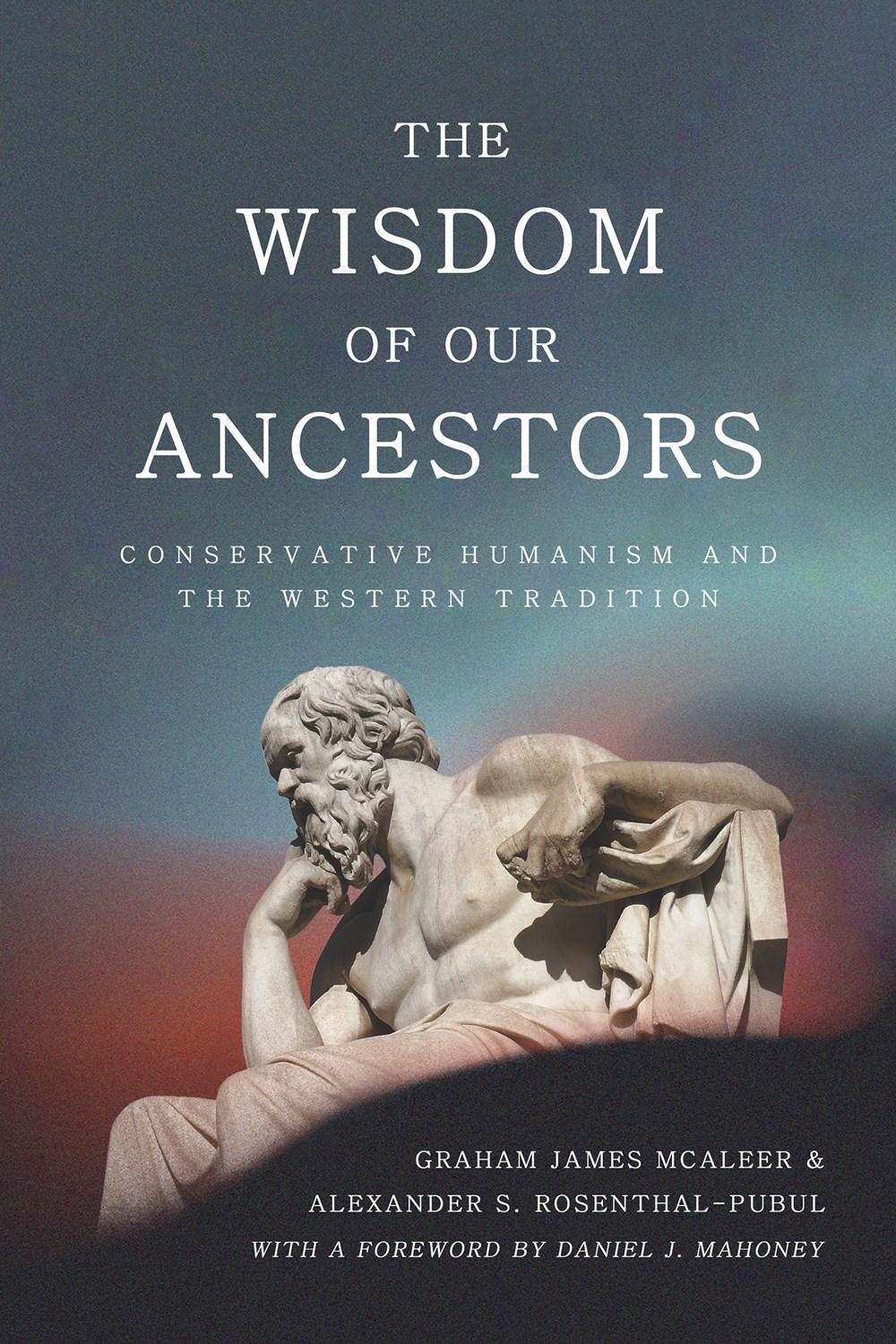
9780268207427
Date: 12/1/23 $55.00
Conservative Humanism and the Western Tradition
Graham James McAleer, Alexander S. Rosenthal-Pubul
Summary
In The Wisdom of Our Ancestors, the authors mount a powerful defense of Western civilization, sketching a fresh vision of conservatism in the present age.
In this book, Graham McAleer and Alexander Rosenthal-Pubul offer a renewed vision of conservatism for the twenty-first century. Taking their inspiration from the late Roger Scruton, the authors begin with a simple question: What, after all, is the meaning of conservatism? In reply, they make a case for a political orientation that they call “conservative humanism,” which threads a middle way between liberal universalism and its ideological alternatives. This vision of conservatism is rooted in the humanist tradition (that is, classical humanism, Christian humanism, and secular humanism), which the authors take to be the hallmark of Western civilizational identity. At its core, conservative humanism attempts to reconcile universal moral values (rooted in natural law) with local, particularist loyalties. In articulating this position, the authors show that the West—contra various contemporary critics—does, in fact, have a great deal of wisdom to offer.
The authors begin with an overview of the conservative thought world, situating their proposal relative to two major poles: liberalism and nationalism. They move on to show that conservatism must fundamentally take the form of a defense of humanism, the “master idea of our civilization.” The ensuing chapters articulate various aspects of conservative humanism, including its metaphysical, institutional, legal, philosophical, and economic dimensions. Largely rooted in the Anglo-Continental conservative tradition, the work offers fresh perspectives for North American conservatism.
Contributor Bio
Graham James McAleer is professor of philosophy at Loyola University Maryland and the author of a number of books, including Erich Przywara and Postmodern Natural Law (University of Notre Dame Press, 2019).
Alexander S. Rosenthal-Pubùl is lecturer at Johns Hopkins University’s Center for Advanced Governmental Studies and director of the Petrarch Centre, LTD.

9780268106980
Pub Date: 2/15/23
$30.00 USD
276 Pages
9 in H | 6 in W
The Strange History of a Radical Idea
Bradley C. S. Watson
Summary
At its core this book is intellectual history, tracing the work of progressive historians as they in turn wrote the history of progressivism.
In Progressivism: The Strange History of a Radical Idea, Bradley C. S. Watson presents an intellectual history of American progressivism as a philosophical-political phenomenon, focusing on how and with what consequences the academic discipline of history came to accept and propagate it. This book offers a meticulously detailed historiography and critique of the insularity and biases of academic culture. It shows how the first scholarly interpreters of progressivism were, in large measure, also its intellectual architects, and later interpreters were in deep sympathy with their premises and conclusions. Too many scholarly treatments of the progressive synthesis were products of it, or at least were insufficiently mindful of two central facts: the hostility of progressive theory to the Founders’ Constitution and the tension between progressive theory and the realm of the private, including even conscience itself. The constitutional and religious dimensions of progressive thought—and, in particular, the relationship between the two—remained hidden for much of the twentieth century. This pathbreaking volume reveals how and why this scholarly obfuscation occurred. The book will interest students and scholars of American political thought, the Progressive Era, and historiography, and it will be a useful reference work for anyone in history, law, and political science.
Contributor Bio
Bradley C. S. Watson teaches at the Van Andel Graduate School of Government at Hillsdale College in Washington, D.C.. He is the author and editor of numerous books, including Living Constitution, Dying Faith: Progressivism and the New Science of Jurisprudence and Progressive Challenges to the American Constitution: A New Republic

Brian M. McCall
Summary
This book argues that classical natural law jurisprudence provides a superior answer to the questions “What is law?” and “How should law be made?” rather than those provided by legal positivism and “new” natural law theories.
What is law? How should law be made? Using St. Thomas Aquinas’s analogy of God as an architect, Brian McCall argues that classical natural law jurisprudence provides an answer to these questions far superior to those provided by legal positivism or the “new” natural law theories. The Architecture of Law explores the metaphor of law as an architectural building project, with eternal law as the foundation, natural law as the frame, divine law as the guidance provided by the architect, and human law as the provider of the defining details and ornamentation. Classical jurisprudence is presented as a synthesis of the work of the greatest minds of antiquity and the medieval period, including Cicero, Aristotle, Gratian, Augustine, and Aquinas; the significant texts of each receive detailed exposition in these pages. Along with McCall’s development of the architectural image, he raises a question that becomes a running theme throughout the book: To what extent does one need to know God to accept and understand natural law jurisprudence, given its foundational premise that all authority comes from God? The separation of the study of law from knowledge of theology and morality, McCall argues, only results in the impoverishment of our understanding of law. He concludes that they must be reunited in order for jurisprudence to flourish. This book will appeal to academics, students in law, philosophy, and theology, and to all those interested in legal or political philosophy.
Contributor Bio
Brian McCall holds the Orpha and Maurice Merrill Chair in Law at the University of Oklahoma College of Law.
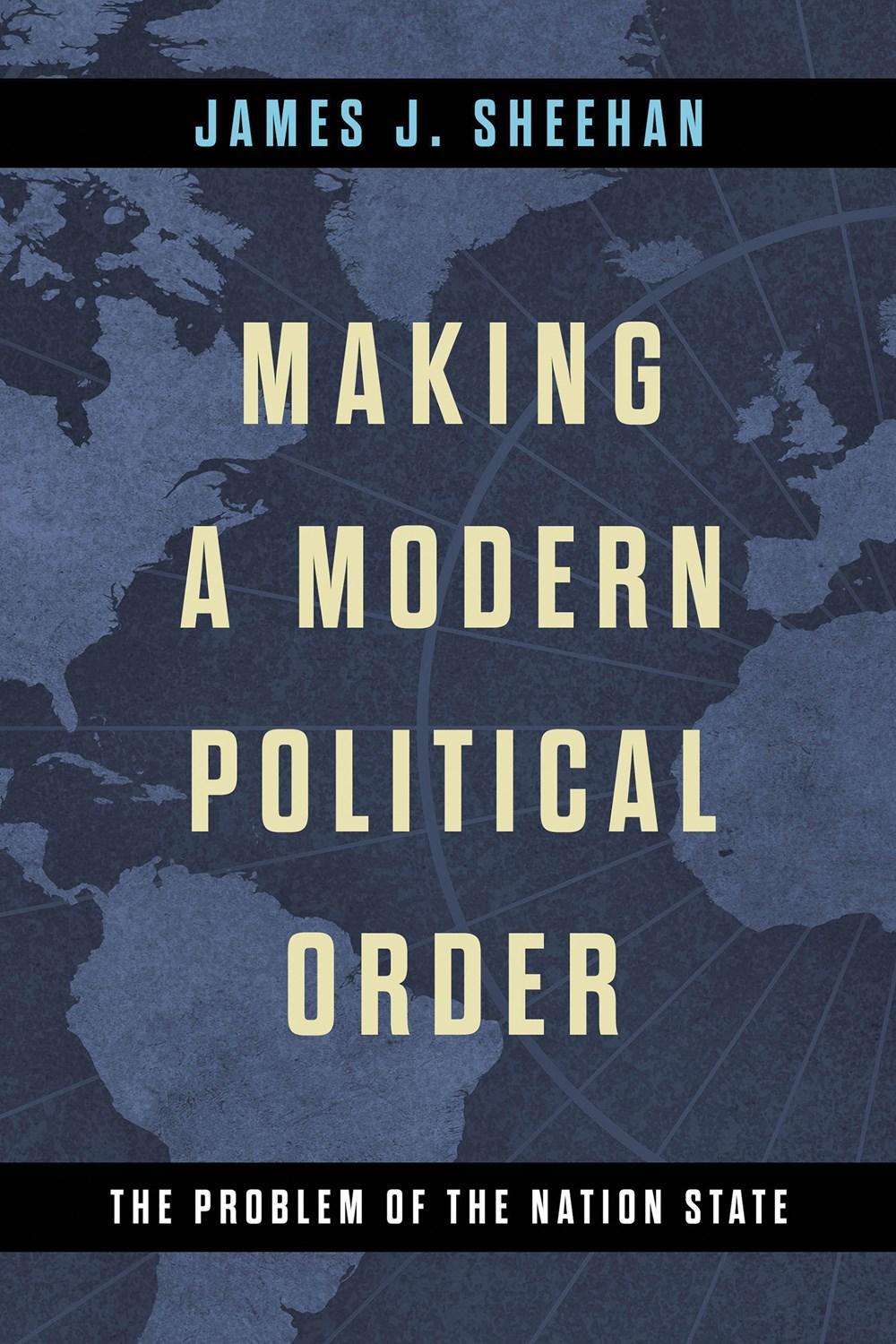
9780268205379
$50.00
246 Pages
5 b&w illustrations, 1 map
on Democracy and
9 in H | 6 in W
James J. Sheehan
Summary
Sheehan’s thoughtful book makes a convincing case that the modern political order arises out of people’s shared expectations and hopes, without which the nation state could not exist.
Every political order depends on a set of shared expectations about how the order does and should work. In Making a Modern Political Order, James Sheehan provides a sophisticated analysis of these expectations and shows how they are a source of both cohesion and conflict in the modern society of nation states. The author divides these expectations into three groups: first, expectations about the definition and character of political space, which in the modern era are connected to the emergence of a new kind of state; second, expectations about the nature of political communities (that is, about how people relate to one another and to their governments); and finally, expectations about the international system (namely, how states interact in a society of nation states). Although Sheehan treats these three dimensions of the political order separately, they are closely bound together, each dependent on—and reinforcing—the others. Ultimately, he claims, the modern nation state must balance all three organizing principles if it is to succeed.
Sheehan’s project begins with an examination of people’s expectations about political space, community, and international society in the premodern European world that came to be called the “ancien régime.” He then, in chapters on states, nations, and the society of nation states, proceeds to trace the development of a modern political order that slowly and unevenly replaced the ancien régime in Europe and eventually spread throughout the world. To close, he offers some speculations about the horizon ahead of us, beyond which lies a future order that may someday replace our own.
Contributor Bio
James J. Sheehan is the Dickason Professor in the Humanities, Emeritus, at Stanford University. He was president of the American Historical Association in 2005 and is the author and editor of numerous books, including Where Have All the Soldiers Gone?
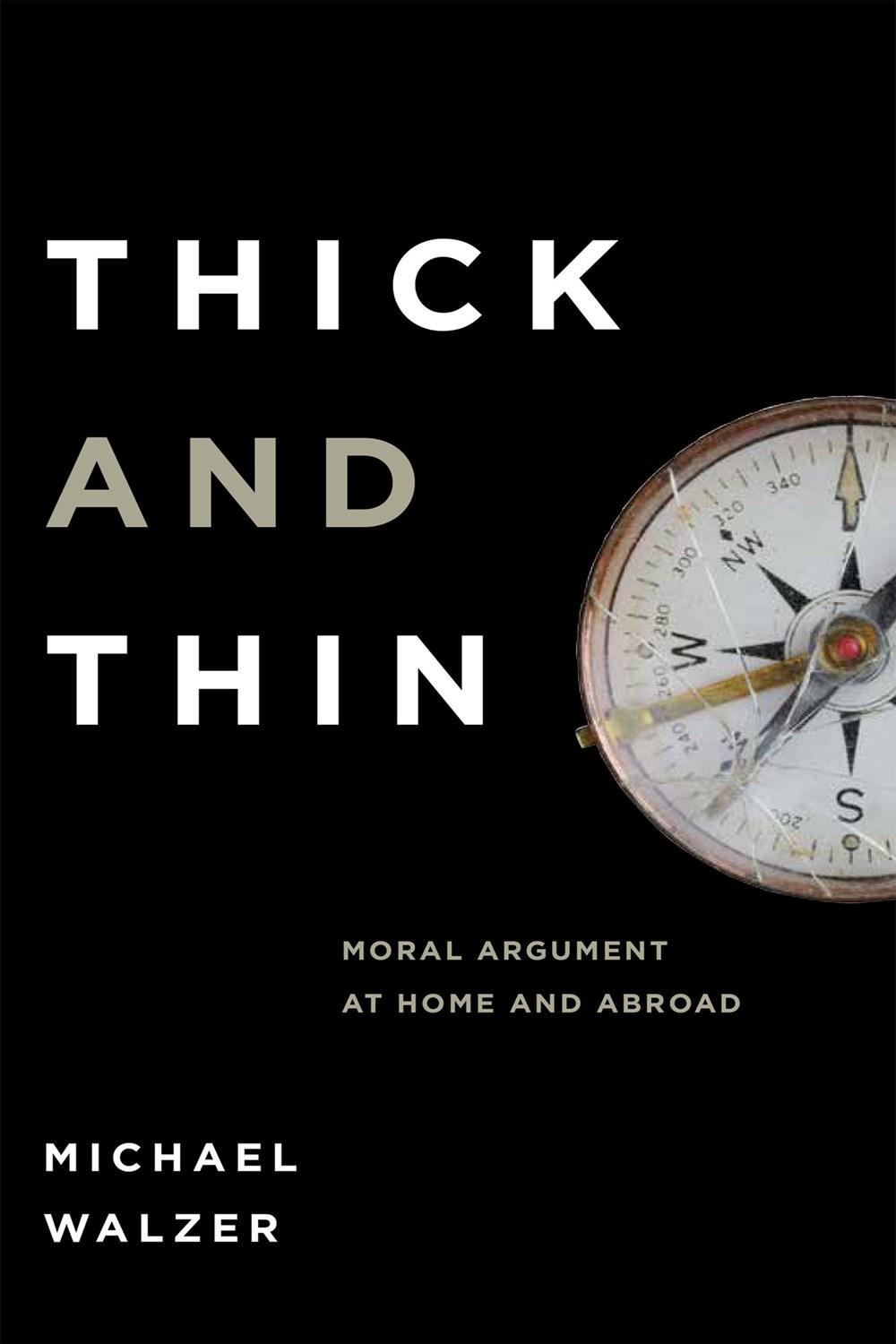
and Thin
Moral Argument at Home and Abroad
Michael Walzer
Summary
Thick and Thin: Moral Argument at Home and Abroad frames ideas about justice, social criticism, and national identity in light of the new political world that has arisen in the past three decades.
Michael Walzer focuses on two different but interrelated kinds of moral argument: maximalist and minimalist, local and universal—thick and thin. He revises and extends the arguments in his influential Spheres of Justice to reflect his additional analysis and interrogation as well as the shift in world politics. This edition has a new preface and afterword, written by the author, describing how the reasoning of the book connects with arguments he made in Just and Unjust Wars. Walzer’s highly literate and fascinating blend of philosophy and historical analysis will appeal to any and all intelligent readers who want to understand the arguments about the morality of warfare and engage with them.
Contributor Bio
Michael Walzer is Emeritus Professor of the Institute for Advanced Study at Princeton University. He is the author of Arguing About War, On Toleration, and Just and Unjust Wars
You can order the books by:
PHONE FAX
800-848-6224 or 919-966-7449
800-272-6817 or 919-962-2704
EMAIL WEBSITE orders@longleafservices.org
Visit our website at undpress.nd.edu
MAIL INQUIRIES to: University of Notre Dame Press
EMAIL to: customerservice@longleafservices.org c/o Longleaf Services, Inc. 116 S. Boundary St. Chapel Hill, NC 27514-3808
Shipping and Handling: $6 for the first book and $1 for each additional book. Shipping by expedited means for shipments outside the US will be charged $10 for the first book, and $6 for each additional book.
The University of Notre Dame Press is committed to making our scholarly materials available in a full range of digital formats—those that currently exist and those that will be developed in the future—to reach a worldwide community of readers. Whether you own a Kindle, Nook, iPad, or other reading device, you can read University of Notre Dame Press ebooks using any of the following retail channels:


Our library partners include:
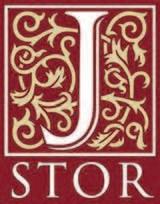









This catalog describes new and recently published books from the University of Notre Dame Press.
Publication dates, page counts, prices, and discounts are based on information available at the time this catalog went to press and are subject to change without prior notice.
Books in this catalog may also be ordered through Edelweiss, the service from Above the Treeline.


Sign up for our e-newsletter at undpress.nd.edu for information about our publications and special offers.